Wealth Horizons
Unveiling Expert Strategies & Insights
A Hubbis E-Publication



3. KPMG’s Karmen Yeung on Steering Wealthy Chinese Businesses & Families Through a Myriad of Challenges, an interview with Karmen Yeung, Partner and National Head of Private Enterprise at KPMG China.
9 PwC Expert John Wong on Charting the Evolving Needs & Expectations of Greater China's Ultra-High-Net-Worth Families, an interview with John Wong, Partner at PwC Hong Kong.
14 Cross-Jurisdictional Wealth & Estate Structuring: Leading Lawyer Wei Kang on Delivering Advice and Solutions in Greater China, an interview with Wei Kang, Partner at Stephenson Harwood
20. Leading Lawyer Jonathan Mok on the Trials and Tribulations of Advising UHNW Families in Hong Kong and Greater China, an interview with Jonathan Mok, Partner at Karas So LLP.
27 Inside Karina Wong’s Mission to Guide Greater China HNW and UHNW Families Through the Maze of Tax and Succession Planning, an interview with Karina Wong, Greater China Business Tax Services Leader, Private Tax Co -leader, and Family Enterprise Leader, EY.
31. Alpadis Group CEO: Navigating Client Fiduciary and Corporate Services Needs in a Complex and Competitive World, an interview with Alain Esseiva, Chairman, CEO, and CoFounder of Alpadis Group
37. Navigating New Tax Frontiers: FAME Advisory and Nirav Shah’s Guide to Tax in the UAE and Beyond, an interview with Nirav Dinesh Kumar Shah, Founder and Managing Director of FAME Advisory DMCC.
40 Robust Estate & Legacy Planning: The Need to Know Your Objectives and Choose Your Advisers Carefully, an interview with Kevin Lee, Partner at Stephenson Harwood
44. Preserving Intergenerational Wealth: Views from Investment Migration Expert Dominic Volek, an interview with Dominic Volek, Group Head of Private Clients at Henley & Partners.
47. Preserving Intergenerational Wealth: Leading Appleby Lawyer on Smart & Effective Planning Solutions, an interview with Richard Grasby, Partner, Private Client & Trusts at Appleby.
51 The Accidental US Taxpayer - How Many Non-American HNW FAANG Investors are Guaranteed to Lose up to 40%, an Op -Ed by Hubbis Engagement & Consulting Partner Mark Smallwood.
56. The Need for Consistent Advice Amidst Constantly Evolving Global Tax and Residence Rules, an interview with Howard Bilton, Chairman and Founder of The Sovereign Group.
60 Navigating Asia's Private Client Advisory Challenges and Opportunities in 2024 with Butler Snow's John Shoemaker, an interview with John Shoemaker, Registered Foreign Lawyer at Butler Snow.

Karmen Yeung is a Partner and National Head of Private Enterprise at KPMG China. She has a world of opinions and perspectives on the evolution tax advisory and wealth planning & structuring for wealthy business owners and private clients. Hubbis met with her recently to learn more about her, her missions, and what her team at KPMG is aiming to achieve in the foreseeable future. She has a deep commitment to her role in helping wealthy business owners and families navigate the multi-faceted challenges they face at home with tax, corporate structuring, M&A and IPOs, as they often expand family and/or business investments to overseas jurisdictions, as they seek to manage growth, and as they aim to pass their wealth and businesses on to the next generations and establish their long lasting family legacy.
GET IN TOUCH
View Karmen Yeung’s LinkedIn Profile
Find out more about KPMG China
 KARMEN YEUNG KPMG China
KARMEN YEUNG KPMG China
She opens the discussion by explaining about the service offered by KPMG Private Enterprise and its coverage, noting that they strive to offer a specialised and somewhat unique approach to serving private family clients. Since 2018, the team combines audit, tax, and advisory services to cater to the multifaceted needs to private family-controlled entities. “The private world of business there is vast, with personal and business finances often closely intertwined,” she says. “Our team has knowledge and experience to cover clients from both mainland and Hong Kong and we understand their differences and needs.”
The inception of their dedicated service to private enterprises stemmed from a recognition of the unique challenges these clients face, particularly in navigating tax implications across borders, as well as personal and family wealth and estate planning. “Tax definitely is one of the entry points to connect with our clients when they are talking about key family issues,” Yeung notes.
Yeung articulates her key priorities for the year or so ahead, explaining that she is taking a comprehensive approach that aims to address the complex challenges faced by her clients and her firm.
One of her key priorities involves early and inclusive succession planning. She believes in the importance of preparing the next generation not just by default but by actively engaging them in the planning process. This strategy is designed to ensure that successors understand their roles and the expectations placed upon them, which is crucial for the smooth continuation of family businesses.
Another significant focus for Yeung is navigating the increasingly complex global tax landscape. With changes and reforms happening worldwide, including in the UK, Karmen points out the critical need for robust compliance management. “Through its global network, KPMG aims to provide comprehensive tax support, helping clients anticipate and tackle potential compliance issues proactively,” she says. “This initiative is part of the firm’s broader effort to protect clients from the intricacies of tax regulations and the challenges they present.”
She also advises families to reconsider how they associate themselves with their businesses. “Rather than viewing the business as the entirety of their identity, families are encouraged to see it as one of many investments,” she says. “This perspective leads to the strategic use of family offices for succession planning, ensuring that the family’s legacy extends beyond the business itself.”
Expanding beyond these client-centric priorities, Yeung outlines strategic goals for KPMG itself. The firm is set to enhance its tax support for clients, providing them with the knowledge and tools needed to navigate the complex tax environment. This is especially pertinent at a time when governments worldwide are seeking increased tax revenues from businesses and individuals alike.
Moreover, she is keen on fostering corporate governance within family businesses, particularly those in mainland China facing succession and governance challenges. “By leveraging the firm’s extensive expertise across various domains, we aim to ensure these businesses are well-positioned for sustainable growth and successful generational transitions,” she concludes.
With KPMG’s vast global network at their disposal, Yeung’s team is adept at tackling family and business issues alike, ensuring clients’ needs are met at every level. From IPO planning through their audit services to corporate restructuring and talent optimisation in advisory, the focus remains firmly on the family’s broader ambitions. “We have the family in mind in all the services that we are providing,” Yeung concludes, encapsulating the ethos of her team’s work at KPMG. “We aim to help these families to achieve what they aspire to, whether we’re serving them at the family level or we’re looking after the business or enterprise level.”
Yeung then drills down into the challenges and strategies these family enterprises face, particularly in Hong Kong and Mainland China. She notes the stark differences in market dynamics and the complexity of succession issues that vary significantly between regions. In Hong Kong, businesses are transitioning to fourth or fifth generations, while Mainland China sees many navigating the precarious shift from first to second generation.
Yeung emphasises the critical importance of preparing for succession well in advance, highlighting a common oversight among founders: the reluctance to formalise their business vision and policies. “For business founders, there’s no history, there’s no experience, and they don’t know how to deal with the complexity in succession planning when passing on their business to the next-gen,” she explains. “This gap is where KPMG’s expertise comes into play, offering professional advice, guidance and sharing experiences to smooth these transitions.”
For businesses that are not yet public, Yeung identifies governance and decision-making as potential hurdles. The respect for founders’ decisions often goes unquestioned, presenting challenges for the next generation aiming to assert their leadership. She stresses the importance of establishing clear governance policies for both the corporate and family and incentive systems to ensure smooth transitions and sustain business health.
Diversification and professional management also stand out as pivotal areas. Yeung mentions how some clients seek advice on integrating professional management to complement family-led initiatives, underscoring the necessity of aligning these strategies with the company’s vision and mission.
Yeung also touches on broader concerns like sustainable growth and the impact of technological advancements like AI. “We sense a growing unease among entrepreneurs in Mainland China due to slower economic growth rates, which, although still healthy by global standards, mark a significant shift from the past decades’ rapid expansion,” she observes. “This has led some to look abroad, seeking to mitigate risks and seize new opportunities — a journey my team and KPMG are well placed to support.”
Expanding on these comments, Yeung sheds light on the intricacies facing Chinese families seeking to diversify their businesses overseas. The leap from the familiar regulatory and cultural environment of
« ‘‘We have the family in mind in all the services that we are providing... We aim to help these families to achieve what they aspire to, whether we’re serving them at the family level or we’re looking after the business or enterprise level.” »
Mainland China to international markets presents both opportunities and challenges.
Highlighting the general readiness of Mainland Chinese entrepreneurs to navigate complex foreign regulations, thanks to their experience with China’s stringent controls on foreign exchange, taxation, and investment. However, adapting to the operational and cultural norms of international markets requires patience and a willingness to learn. “Digital is so convenient... I haven’t used bank note for five years in Mainland China,” Yeung points out the stark differences in day-to-day business operations among different regions.
For Hong Kong entrepreneurs, the transition can be even more jarring. Accustomed to a highly liberal and straightforward business environment, they encounter significant challenges understanding the layered regulatory and control mechanisms prevalent in other countries. Luckily, benefiting from the rich pool of professionals in the market who can bring both practical experience or work effectively with overseas professional to provide support and solutions to Hong Kong entrepreneurs, it allows them focus on the market growth plan. The role of professional advisors become more important to all the businesses and families as they start to venture to overseas market.
She then highlights a strategic shift among Mainland Chinese HNW and UHNW families towards diversification and risk management as key drivers behind
With a career spanning nearly three decades at KPMG, one of the world’s leading professional services firms, Karmen has navigated the complexities of the global business landscape while maintaining a commitment to personal well-being and family.
Born in Hong Kong, she embarked on her post-school academic journey at the Chinese University of Hong Kong (CUHK), where she obtained a Bachelor of Business Administration with a focus on International Business. Although she initially ventured into accounting post-graduation, her career took a broader scope, encompassing a wide range of advisory roles.
Reflecting on her career, the highlights are as diverse as they are enriching. From the thrill of exploring different businesses to the privilege of learning from successful entrepreneurs and innovators, Yeung’s professional journey has been akin to a series of live case studies. “Instead of sitting in a classroom and analysing case studies, I’m paid to talk to many different and very successful people and I always learn from them,” she shares.
Her long-standing tenure with KPMG, approaching the 30-year mark, is a testament to her dedication and the firm’s investment in its people. Over the years, she has cherished the opportunity to glean wisdom from clients, adopting smart tips and innovative strategies that she could bring back to her and her team’s business practices. “This reciprocal learning process underscores the symbiotic relationship between the trusted advisor and private client, where knowledge exchange fosters mutual growth and engenders trust,” she says.
Away from the corporate world, she has embraced a journey towards personal wellness. Recognising the toll that a demanding career can take on physical health, she committed to regular gym sessions with a personal trainer and explored meditation, specifically delving into Buddhism. This holistic approach to well-being reflects a conscious effort to maintain balance amidst the pressures of professional life in the big city.
Yeung’s experiences in mainland China, particularly during the COVID-19 pandemic, have added another layer to her professional narrative. Volunteering to work in cities like Shanghai, Guangzhou, and Shenzhen, she has been at the forefront of KPMG’s expansion efforts in China. These stints not only offered her professional enrichment but also a deeper understanding of China’s dynamic market.

With her experience gained from working with different sectors and in different regions, she believes everyone has a role to play in giving back to our communities. She is very passionate to the development of Hong Kong. She always thinks from the perspectives of investors and how Hong Kong can be more competitive and attractive to them. She is taking every step to contribute to the high-quality development of the Greater Bay Area. The various roles she takes up cover the development of innovation and technology Industry, talent attraction, trade and industries development etc. She is committed to provide her suggestions to the various government authorities in Hong Kong and Mainland China through her various public service roles.
As she shares her journey, it is clear that her story is one of continuous learning, adaptation, and balance. Navigating the highs and lows of the business world, she has managed to carve out a fulfilling career while not losing sight of the personal values that define her. Her journey with KPMG and beyond serves as an inspiring reminder of the multifaceted nature of success, both in boardrooms and in the quiet moments of introspection and family life.
their offshore investments. The criteria for selecting a location heavily weigh on political stability and cultural familiarity, with Singapore initially outpacing Hong Kong due to perceptions of its robust stability and forwardlooking regulations. However, recent policy changes and incentives introduced by the Hong Kong government have begun to reverse this trend, making Hong Kong an increasingly attractive option for these families.
“Many Chinese families used to lean towards Singapore, partly due to the Global Investor Programme (GIP), which offers a pathway for investors and their families to obtain permanent residency in Singapore by investing in local businesses or funds,” she explains. “This programme was attractive because of Singapore’s stable political climate, robust regulatory
framework, and cultural proximity to China.”
However, Yeung notes a shift in this trend, with Hong Kong regaining appeal among these families. This change was influenced by Hong Kong’s introduction of new policies aimed at attracting family offices and skilled talent, alongside incentives that made the city more attractive for business and investment. A client Yeung worked with illustrates this shift: initially set on Singapore, the client paused their GIP application upon seeing the new opportunities in Hong Kong. This included exploring R&D and incubation programmes with local universities, which piqued the family’s interest in investing in Hong Kong.
« “Hong Kong’s strategic moves to enhance its attractiveness as an investment hub, coupled with its proximity to mainland China and its pool of professional advisors, are pivotal factors drawing investors back.” »
“The client’s reconsideration highlights the nuanced decisionmaking process for Chinese wealthy families looking offshore,” Yeung explains. “Hong Kong’s strategic moves to enhance its attractiveness as an investment hub, coupled with its proximity to mainland China and its pool of professional advisors, are pivotal factors drawing investors back.” She says their work, bridging the gap between these families and the opportunities available in Hong Kong, exemplifies the dynamic advisory role required in today’s complex investment landscape.
Yeung also comments on the emerging interest among her clients in the UAE, particularly Dubai, as a potential hub for wealth management. She notes that her team is actively advising a number of clients to design, evaluate and implement family office business expansion in the UAE. She acknowledges the UAE’s potential in the wealth management sector, pointing out that a mix of factors, including competitive policies, will be crucial in determining its attractiveness to wealthy clients. This evaluation suggests a broader view of wealth management strategies, considering global shifts and the
emergence of new financial centres and opportunities.
She then offers a nuanced perspective on the intricate dynamics of family businesses in China, highlighting the challenges and opportunities presented by the one-child policy and generational transitions. With a deep understanding of the cultural and regulatory landscapes, she sheds light on the unique pressures faced by Chinese entrepreneurs who strive to ensure the longevity of their family businesses across generations.
Yeung observes: “Chinese families in any market or any jurisdiction tend to want to see the family business endure down the generations. It is an attachment, or the entrepreneur would believe they have, this is a personal attachment about the business. This attachment is not just emotional but also strategic, aiming to preserve the family’s legacy and name through business success.”
However, she says the onechild policy presents a unique challenge. “If your child, your only child is not interested, then who
else?” Yeung notes, highlighting the dilemma faced by many Chinese entrepreneurs.
The younger generations step up
Despite these challenges, Yeung sees a trend of increasing involvement from the younger generations, especially the third generation, who are more vocal and eager to contribute to the family enterprise. This shift is attributed to the evolving approach of the second generation, who, having navigated their own succession challenges, aim to foster a more inclusive and consultative environment for their own successors.
“The original founder, if he has a certain style, maybe he is more authoritative, might tend not to listen and consult too much,” Yeung comments. “The second generation will often accept what it is until the business is passed on to them, and then they evolve and do things differently,” Yeung explains. “Their experiences, whether positive or fraught with challenges, inform how the second generation prepares the third for leadership, encouraging earlier engagement, consultation, and involvement in decision-making processes.”

John Wong, Partner at PwC in Hong Kong, stands at the forefront of navigating the complex needs of Greater China’s ultra-high-net-worth (UHNW) individuals and families. With over two decades of pioneering service, Wong and his team have been instrumental in educating and guiding China’s first wave of HNWIs through the intricacies of wealth preservation, tax planning, and succession strategies. As the demographics and sophistication levels of these clients evolve, so too does the approach of PwC, adapting to offer holistic, multidisciplinary and multifaceted local and global solutions that cater to both the pioneering generation and the digitally-savvy, globally-minded nextgen heirs. John’s insights into the establishment and strategic location selection for family offices highlight the appeals of Singapore in the region, and Hong Kong’s latterly improving position as a global wealth management and structuring hub that balances excellent financial market skills and traditions with modern financial innovations to cater to the dynamic needs of Asia’s wealthiest families.
GET IN TOUCH
View John Wong’s Profile
 PwC Hong Kong
PwC Hong Kong
John opens the conversation by addressing some of the key challenges at the moment in wealth and estate structuring and their personal financial affairs for Greater China UHNW clients, John Wong, Partner at PwC in Hong Kong, delves into the intricate evolution of private client services in Greater China, emphasising the pivotal role his practice has played over the last 23 or 24 years. Beginning in an era when the concept of wealth management for the newly affluent was truly nascent, PwC identified the need for comprehensive education for China’s first generation of HNW and UHNW families, many of whom are now listed on prestigious wealth indices like the Hurun Report.
John highlights the initial challenge of educating these HNWIs about the fundamentals of wealth preservation, trust structures, tax planning, and the importance of succession planning for both onshore and offshore assets. “These people, predominantly in their 40s and 50s at the time, required guidance to navigate the complexities of safeguarding their newly acquired wealth, which often spanned diverse sectors from traditional industries to the burgeoning new economy,” John reports.
Fast forward to today, and the landscape has shifted significantly. The current generation of wealth holders is far more sophisticated, having been educated by many private banks, asset managers, and others in the wealth and professional services ecosystem. “This sophistication necessitates a holistic approach from service providers like PwC, which now focuses not only on wealth planning but also on the seamless integration of global asset allocation strategies,” John elucidates.
A key evolution in the industry is the emergence of a highly educated group of next-gen wealth inheritors. These individuals, possibly the second or third generation within their families, bring a wealth of
knowledge and digital savviness to the table. They often act as internal advisors for their families while navigating the selection of external service providers.
“PwC’s engagement with these next-gen leaders involves a nuanced approach,” he explains, “recognising their propensity to innovate within their family’s governance structures and to contribute significantly and often positively to the family legacy and planning.”
Wong sees the trend towards the establishment of single-family offices in Hong Kong as particularly noteworthy. These entities, driven by next-gen initiatives, are pivotal in consolidating investments, ensuring comprehensive succession planning, and maintaining tax compliance across all family assets. This development aligns with Wong’s advocacy for Hong Kong as a premier hub for family offices, showcasing the city’s strategic importance in the wealth management ecosystem.
The holistic approach “As the preferences and requirements of UHNW families evolve, we at PwC adapt, offering tailored, multidisciplinary approaches to meet the changing demands of both the current and next generations of family business leaders in China and Greater China,”
« “This sophistication necessitates a holistic approach from service providers like PwC, which now focuses not only on wealth planning but also on the seamless integration of global asset allocation strategies.” »
he states. “This strategic adaptation ensures that PwC remains a leader in the private client services sector, addressing the intricate dynamics of wealth in Greater China with expertise and foresight.”
Zooming in further on some more of the key challenges clients and advisors face, John emphasises the need for a comprehensive approach to address the multifaceted challenges faced by ultra-high-networth (UHNW) families in Greater China. For practitioners at PwC, the imperative is clear: to devise wealth protection and transfer strategies that take into account the myriad factors influencing family assets across generations. This requirement places a premium on technical proficiency and an indepth understanding of the specific parameters that define effective family wealth management.
Adapting to the rigours of global regulation Central to the challenges confronting Chinese clients is the global taxation landscape, which demands unwavering compliance. John highlights the necessity for these families to adopt a compliant mindset, particularly in light of newer and very stringent regulations such as the Common Reporting Standard (CRS). The management of assets, both within China and internationally, introduces additional complexity due to the country’s regulatory and foreign exchange controls. Ensuring that structures holding domestic and offshore assets adhere to all relevant laws and regulations remains a significant hurdle.
John’s insights shed significant light on the enduring challenges of tax compliance, regulatory navigation, and the holistic management of
John is the PwC China Family Business and Private Client Services Leader. He has more than 30 years of experience specialising in helping high net-worth individuals and families primarily based in Asia Pacific with Chinese and other nationalities to devise tailor-made tax planning, family wealth and business succession planning to achieve the specific personal and family goals of such clients by using trusts, insurance and other appropriate structures for the implementation of such planning as well as setting up family offices and devising family governance and constitution.
He has extensive experience in advising various China and Hong Kong based international financial institutions and trustees and is also a frequent speaker at wealth forums and tax seminars.
family wealth. These challenges underscore the critical role of adept wealth management practitioners who can guide families through the intricacies of maintaining compliance while safeguarding and transferring their wealth efficiently across generations.
He then focuses on the delicate matter of selecting the right offshore jurisdictions for the establishment of family offices, emphasising the need for a tailored approach that aligns with the client’s unique requirements and asset profiles. From his vantage point as an advisor, he stresses the importance of understanding each client’s asset allocation and the global distribution of their holdings. He also acknowledges the complexity that arises when families own diverse assets spread across different countries, ranging from real estate in the UK and US to art collections and private equity investments.
John discusses the evolving role of family offices, not as a novelty but as a longstanding mechanism for
managing wealth and addressing non-investment functions like succession planning and family governance. “The idea of having a family office has become increasingly popular, underlining the need for and also facilitating more sophisticated management of the family’s assets and affairs,” he says. “Deciding to establish a family office is only the beginning; the critical question then becomes where to locate it and how to structure it.”
Highlighting Hong Kong’s merits, John describes the city as a traditional financial centre renowned for its professional services, banking infrastructure, and strategic position as a gateway to China.
While advocating for Hong Kong based on its strengths, he remains objective, acknowledging that what suits one family may not suit another. Ultimately, the choice of location for a family office should be influenced by where the family

predominantly resides, ensuring that the office can effectively serve its primary beneficiaries. This approach to selecting a jurisdiction reflects a commitment to providing bespoke advice that respects the diverse needs and aspirations of ultra-high-net-worth families in Greater China.
John provides two practical illustrations of the strategic considerations behind setting up family offices in multiple jurisdictions.
He first recounts the story of a client from China, notable for their high net worth derived from offshore assets linked to an offshore listing. This client initially established their first family office in Beijing, a decision influenced by the residential location of some family members. Within China, this family office operated under the guise of a private investment company due to the absence of a specific licensing category for family offices in the country.
“The global nature of the family’s asset allocation necessitated the creation of a second family office outside of Mainland China to manage offshore assets effectively, with Singapore chosen for this purpose, driven by a combination of factors including its early adoption of family office-friendly policies and tax incentives which Hong Kong had not yet implemented,” he explains. “The client opted for Singapore’s attractive 13X incentive scheme, demonstrating the influence of regulatory and tax considerations on the decision-making process for the location of family offices. The client has also established his third Family office in Hong Kong after the enactment of the tax incentives.”
John further elaborates on the evolving landscape of family office setups, highlighting the strategic pivot of another one of his clients from Singapore to Hong Kong. This move was motivated by several factors, including the later promotional efforts by Hong Kong to attract family offices, the geographical and cultural proximity to China, and the allure of tax concessions. His narrative underscores the tailored approach to establishing family offices, and he stresses that the decisionmaking process is influenced by a myriad of personal and financial considerations, including the family’s residency and immigration plans.
He further discusses the concept of having a ‘HQ’ family office in one centre complemented by ‘satellite’ offices across various jurisdictions. This structure allows families to manage their global assets effectively while addressing the diverse needs of family members who might be spread across different countries. The headquarters typically oversees a broad range of functions beyond investment monitoring, including family governance, philanthropy, and managing family affairs, providing a comprehensive solution to wealth and asset management.
John then sheds additional light on the sophistication of today’s clients, particularly the next generation, who come to the table highly educated and well-connected within the financial and advisory sectors. “They expect more than just basic advice; they demand innovative, value-added solutions that offer a comprehensive understanding of how various
wealth management tools can work in concert to achieve their goals,” he reports. “It is vital to take and present a holistic view, as we see the advisory process like completing a jigsaw puzzle where each piece contributes to the overall picture.”
This approach is crucial not only for earning the respect of next-gen clients but also for catering to the diverse needs of the entire family. While the first generation may focus more on the business side of affairs, next-gen members often undertake detailed research to inform the family’s strategic decisions, he elaborates. “This caters to what has been a shift in wealth management services, with advisors now needing to blend traditional knowledge with cutting-edge insights to meet
the evolving demands of multigenerational families, ensuring solutions are tailored to both the immediate and long-term interests of their clients.”
The final word – Hong Kong’s brighter lustre
John returns to the relative position of Hong Kong, reiterating that it has long been a pre-eminent financial hub, and is most definitely so for family offices and wealth management in general today.
“Yes, Hong Kong was later than Singapore in introducing tax concessions for single family offices, but they stepped up and made some very positive changes. Moreover, Hong Kong has always been a compelling choice for financial activities due to the absence of estate tax, gift tax,
and capital gains tax, and now, with the introduction of profits tax exemption for single family offices, its appeal has only grown. We have seen a rising number of enquiries from clients interested in leveraging Hong Kong’s tax planning benefits, especially in light of global tax environment changes such as the OECD’s foreign source income and economic substance rules,” he reports.
His final word is to compliment the efforts of Invest Hong Kong in promoting the city’s advantages globally and says he sees Hong Kong as a prime choice for managing investments in Asia and Mainland China due to its strategic location, underscoring the city’s role as a key gateway and hub for the greater China region.
« “Deciding to establish a family office is only the beginning; the critical question then becomes where to locate it and how to structure it.” »


As the local, regional and global wealth management and regulatory landscapes constantly evolve, navigating the intricacies of wealth management, succession planning, and family governance presents a formidable challenge for HNW and UHNW families. Focusing on clients in the dynamic Greater China region, Wei Kang, a highly experienced private wealth partner at Stephenson Harwood’s Hong Kong office, specialises in addressing these multifaceted challenges. With a practice that spans the breadth of family trust structures, tax advisory, and comprehensive succession planning across multiple jurisdictions, Wei offers an unparalleled depth of insight into the complex world of wealth management. Hubbis met with her recently to quiz her on key trends and developments amongst her clients. She offered some unique insights into the types of conversations she is having with her clients – discussions that span from the challenges of articulating and achieving wealth succession goals to the intricacies of family governance and the strategic use of jurisdictions for asset protection. She directs her holistic approach, rooted in a deep understanding of both onshore and offshore complexities, not only to align with the immediate objectives of her clients but also with their long-term aspirations and values.
GET IN TOUCH
View Wei Kang’s LinkedIn Profile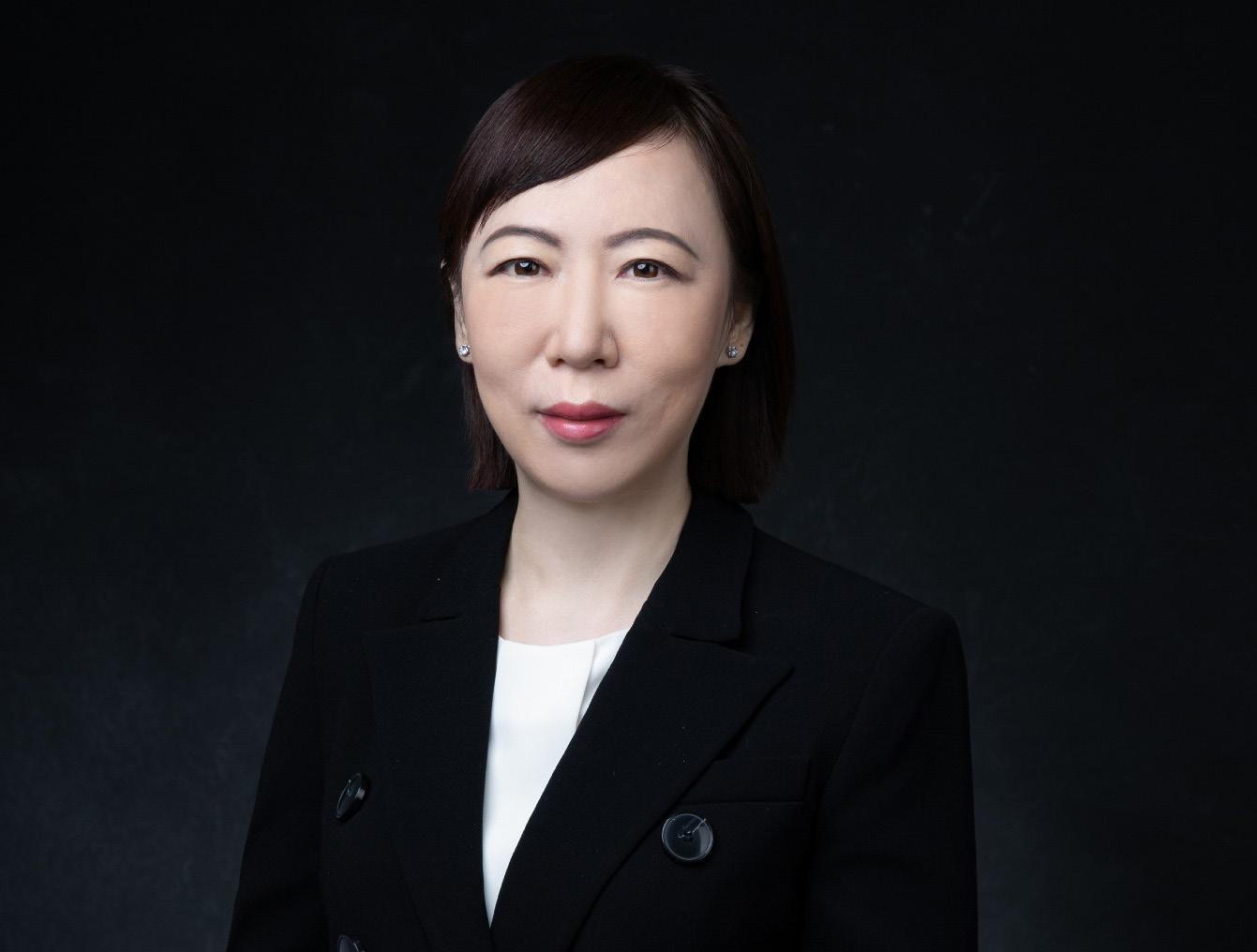
Could you share some of the topics of conversation you’re having with clients currently, especially private clients in Greater China?
At present, the dialogues with clients, especially those from the HNW and ultra-HNW segments in Greater China, are centred around a couple of pivotal areas.
Firstly, we focus on the myriad challenges that these families are encountering. This spans a wide array of complexities but is particularly focused on the nuances of navigating wealth structures in the contemporary landscape, which includes economic, tax and geopolitical considerations.
Secondly, a significant portion of our discussions revolves around family governance, the first-time set-up of the family charter and family policies, the mechanisms through which wealth can be transferred effectively to subsequent generations.
These conversations often shed light on the unique circumstances and needs of each family, ensuring that the advice given is both practical and tailored to their specific personal and family situations and inclinations.
UHNW families in China are at a pivotal juncture where the importance of wealth succession planning has become unmistakably clear. However, despite this awareness, there is a notable gap in sophistication and understanding when articulating their needs and the necessary steps to achieve their wealth transfer objectives.
This gap is further widened by the traditional reliance on family offices or other intermediaries, who typically engage with advisors like us to seek specific services on behalf of these families. That results in two key challenges.
First, there’s an inherent difficulty in identifying the true end goals of the families due to a lack of direct communication and the difficulty in obtaining an in-depth understanding of their wishes.
Second, the path to achieving these objectives is often not straightforward. Unlike requesting a tangible service, navigating the complexities of wealth succession requires a nuanced approach that can only be developed through thorough and considered discussions between the trusted advisors and the families (sometimes less so their representatives).
This process is inherently more time-consuming and requires a level of engagement that goes far beyond the conventional service request, making it a substantial challenge in practice.
Yes, the real root of the problem lies in the way these families, or their representatives, conceptualise and
« ‘‘This product-and-vendor approach is problematic because it bypasses the critical step of goal definition, jumping directly to solution implementation without a thorough evaluation of the needs and the context. It is akin to prescribing medicine without diagnosing the illness.’’ »
approach wealth planning. Drawing parallels from their rich business experiences, they often come to us with specific requests for legal structures, like trusts, without articulating the underlying objectives they aim to achieve with these tools.
This product-and-vendor approach is problematic because it bypasses the critical step of goal definition, jumping directly to solution implementation without a thorough evaluation of the needs and the context. It is akin to prescribing medicine without diagnosing the illness.
Our advisory process is an exercise in probing and questioning to uncover the real objectives behind clients’ requests. This not only requires a deep understanding of the intricacies of wealth structures and succession planning across different jurisdictions but also demands patience and the ability to guide the conversation towards uncovering the true goals of the family. This process is a departure from the conventional request-and-provide service model .
Could you offer some more colour on the initial stages of your discussions with clients?
The initial engagement with clients typically starts with a request for a fee quote to establish a specific trust or legal structure. It’s not uncommon for these requests to be quite detailed, specifying the type of trust (e.g., Singapore trust, BVI trust) or other structures (e.g., Private Trust Company) they might be interested in setting up.
This approach mirrors the transactional nature of their business dealings, where objectives are clear-cut and the solutions straightforward. However, this is where the private client world diverges significantly. The essence of achieving a family’s objectives lies not in the establishment of a specific legal entity or structure per se but in understanding the purpose behind wanting such a structure. Is it for asset protection, succession planning, tax optimisation, or a combination of these and other factors?
Therefore, the conversation needs to pivot from specific requests to a deeper exploration of the family’s overall goals, concerns, and circumstances. This shift is crucial for advising effectively in the private client space, where the implications of decisions extend far beyond the immediate and touch upon aspects of confidentiality, legal jurisdiction, and long-term family dynamics. It’s a process that demands a more sophisticated, nuanced, and time-intensive engagement from the outset.
Can these challenges or hurdles be avoided?
Navigating these challenges effectively requires a holistic approach from the outset. My advice to those in advisory roles is to be proactive and to delve deeper into the motivations and concerns driving the family’s inquiries. This may involve asking pointed questions that go beyond the surface level of wanting to establish a particular structure.
Understanding the patriarch’s vision, the family’s long-term plans, and the nature of their assets
« ‘‘At the higher end of the client spectrum, where the complexity of assets and family dynamics necessitates more intricate planning, the appeal of complex structures and asset diversification becomes pronounced. Conversely, at the lower end, the priority remains on jurisdictions that can be serviced without language barriers, pointing towards a delicate, thoughtful approach to selecting jurisdictions based on the specific needs and capabilities of each client.’’ »
becomes crucial. Initially, the relevance of such detailed questioning might not be apparent to the family offices or gatekeepers, who may perceive their mandate as being straightforward – setting up a trust or another legal structure. However, the reality is that the more we know about the family’s circumstances, the better positioned we are to offer advice that is not only compliant and efficient but also aligned with their deeper objectives.
On the other hand, the UHNW families in Greater China are in my view better served to overcome these challenges if they could select family offices or representatives who are open minded and can appreciate the value of holistic global estate planning for their families. After all, a legal structure like a trust is just a tool for a purpose. The form and the price of a tool are secondary considerations while what really matters is finding the tool which can meet the long term objectives of the UHNW families.
geopolitical tensions affecting Chinese clients’ wealth and planning, what are your thoughts on jurisdiction preferences for asset and structure diversification?
The geopolitical landscape and its impact on wealth is a concern that cannot be ignored, particularly for clients with significant exposure to volatile regions or markets. Singapore continues to be a popular jurisdiction among Chinese clients. However, the sophistication and complexity of clients’ assets and family circumstances are driving a trend towards diversification beyond traditional jurisdictions. In some cases, this includes considering the UAE, Switzerland or Liechtenstein as an alternative, reflecting a strategic move to mitigate risks associated with geopolitical uncertainties.
At the higher end of the client spectrum, where the complexity of assets and family dynamics
Wei Kang is a highly experienced Partner at law firm Stephenson Harwood’s Hong Kong office, specialising in private wealth and global estate planning. With her comprehensive expertise, Wei has become a trusted advisor to high-net-worth families across multiple jurisdictions, offering tailored advice on a wide array of wealth management issues.
Her practice areas encompass complex family trusts and civil law foundations, tax advisory, family governance, pre-immigration planning (Canada), philanthropy, family office establishment, and corporate restructuring, alongside wills, estate, and family business succession planning.
Wei’s ability to navigate both onshore and offshore complexities has made her an invaluable resource for clients seeking nuanced, practical solutions to the multi-faceted challenges of wealth planning. Her experience extends to advising trustees and institutions on operational and fiduciary aspects of asset protection structures. Wei’s approach is holistic, ensuring that each client’s wealth management strategy is fully aligned with their long-term goals and family values.
Before her tenure at Stephenson Harwood, Wei practised law in the Vancouver office of a leading Canadian national law firm and the Hong Kong office of several international law firms, working with seasoned international tax planners to develop and set up a variety of private wealth structures. Her qualifications span Hong Kong and British Columbia, Canada. Wei’s unique background includes secondments to the legal departments of a global bank, enhancing her understanding of the wealth business and trust company operations.
Fluent in English and a native Mandarin speaker, Wei’s communication skills have been a cornerstone of her practice, enabling her to effectively counsel a diverse client base. Her academic accolades include completing the In-Depth Tax Course of Chartered Professional Accountants of Canada, which complements her legal expertise with a deep understanding of complex tax matters. Wei Kang is a legal expert dedicated to crafting sophisticated, forward-thinking solutions for wealth, estate, and legacy structuring.

necessitates more intricate planning, the appeal of complex structures and asset diversification becomes pronounced. Conversely, at the lower end, the priority remains on jurisdictions that can be serviced without language barriers, pointing towards a delicate, thoughtful approach to selecting jurisdictions based on the specific needs and capabilities of each client. This trend underscores the importance of tailored advice that considers not just the financial but also the personal and cultural aspects of each family’s situation.
The awareness amongst clients regarding their true objectives varies significantly. While some high-networth families have a clear vision of their goals, many others are navigating a complex and often overwhelming landscape of options and considerations and are often struggling.
The seeming uniformity of the external world, with its shared news and events, does not translate into a uniform perception among families regarding safe jurisdictions or investment strategies. For instance, despite global uncertainties, some families maintain a strong preference for the US, seeing it as a safe haven for their assets. Others, mindful of geopolitical risks, opt for a diversified strategy that includes jurisdictions like Hong Kong, Singapore, and Switzerland, each offering different advantages and protections.
This diversity in perception and strategy highlights the critical role of advisors in guiding families through the maze of options, helping them understand the implications of their choices, and aligning their decisions with their overarching goals and values. The advisory process, therefore, is not just about providing options but about educating and empowering clients to make informed decisions that best serve their long-term interests.
The selection of an advisor is a decision that hinges on a combination of factors, with trust being paramount. Clients should be seeking advisors who not only possess the technical expertise to navigate cross-jurisdictional issues but also the ability to understand and align with their personal and family goals.
The relationship between an advisor and their client is deeply personal, built on a foundation of trust and mutual understanding. Clients are looking for advisors who can provide comprehensive, holistic advice that takes into account the full spectrum of their needs and objectives. This includes not only the legal and financial aspects but also the personal, familial, and emotional dimensions of wealth management.
The ability of an advisor to communicate effectively, to empathise with the client’s situation, and to provide tailored advice that resonates with their values and aspirations is crucial in trust building.
There is still considerable negativity around the future of Hong Kong as a global financial hub. What do you believe is Hong Kong’s future role in wealth management and structuring?
Despite the challenges and the shifting perceptions of Hong Kong, its role in the wealth management and structuring landscape remains significant. One of the critical factors underpinning this relevance is the concept of substance in wealth structures. In a world where tax authorities are increasingly vigilant, having a substantive economic presence and activities associated with a trust or structure can be a powerful defence against scrutiny.
Hong Kong’s unique position, especially for mainland Chinese clients who may find it challenging to establish substance in other jurisdictions like Singapore, ensures its continued importance.
The city’s robust legal framework, extensive tax treaty network, and territorial tax system offer strategic advantages that can be leveraged effectively in wealth structuring. For families with deep ties to mainland China, the practicalities of establishing and maintaining substance make Hong Kong an attractive option.
This doesn’t diminish the value of diversification - Hong Kong should be viewed as part of a broader strategy that may include other jurisdictions. The key is to
understand and utilise the strengths of each jurisdiction in alignment with the family’s overall objectives and circumstances.
Governance is always a key topic these days, so could you comment on that?
Yes, an area that merits further discussion is the integration of family governance with wealth structuring. While the importance of documenting family values through mechanisms like family charters is increasingly recognised, the interaction between these governance structures and the legal mechanisms of wealth management is less frequently explored.
Effective family governance, when aligned with trust or trust like structures, can be a powerful solution for succession planning. This approach can ensure that the family values and family policies adopted in the family charters can influence the behaviours of family members for generations to come by enabling the family councils to play a key role in the decision-making of the wealth holding structures such as distributions of family wealth. On the other hand, the operation of the wealth holding structures are less likely to be threatened by family disputes following the passing of the patriarchs once the families adopt a governance mechanism which would allow them to speak with one voice even when the families expand into their third generation and beyond.


Jonathan Mok is a highly experienced dispute resolution lawyer specialising in contentious and non-contentious family and private client matters in Hong Kong, where he is also a solicitor advocate, an accredited family mediator and a private financial adjudicator. He is a Partner at Karas So LLP, joining them with his team to help build out their private client capabilities. He was inspired to join roughly one year after Karas So LLP and Mishcon de Reya launched their formal association, with that deal and Jonathan’s subsequent arrival complementing the expertise and reach of private clients practice across Mishcon de Reya’s London and Singapore offices. Jonathan is highly regarded in legal circles, with a reputation for promoting his clients’ interests well beyond focusing only on high-end family legal and financial matters, disputes and resolutions to also focusing on regional and global wealth planning. For over three decades from 1992 onwards, he has built his expertise in major international firms in Hong Kong, and during that time, he also launched his own firm, Jonathan Mok Legal. Hubbis met with him recently to learn more about the man, his missions, his passion for law, his empathy with his clients and his sense of duty to the families he represents.
GET IN TOUCH
View Jonathan Mok’s LinkedIn Profile
Find out more about Karas So LLP
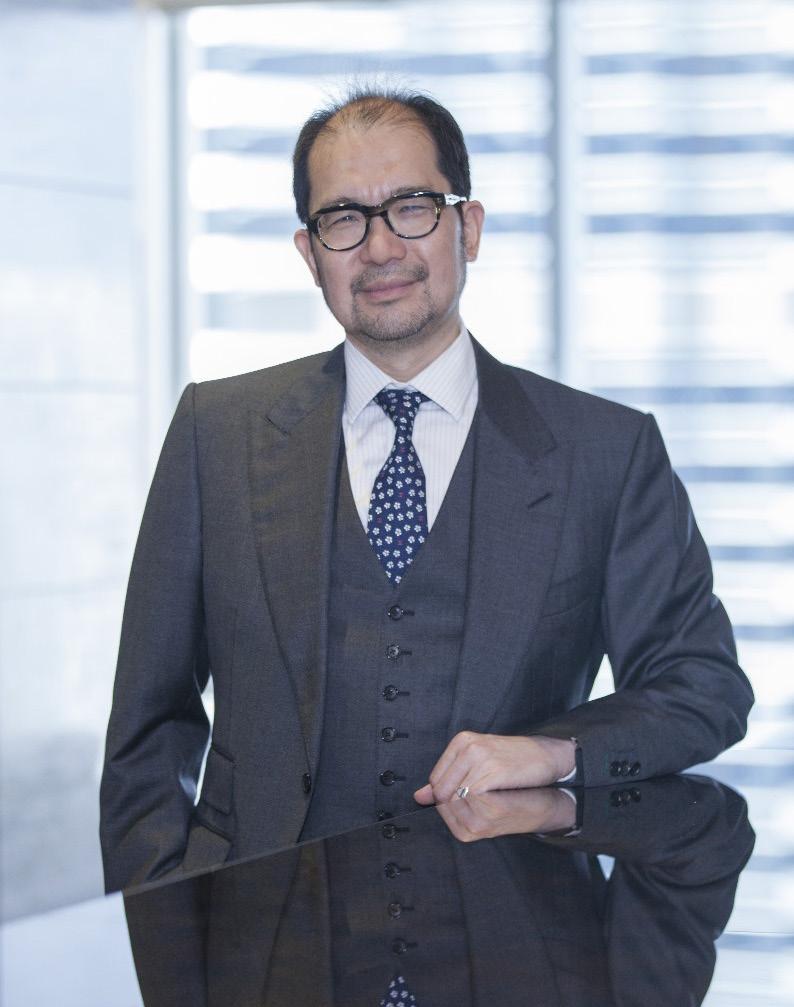
Jonathan Mok’s extensive practice in private client law stretches beyond the shores of Hong Kong to encompass the broader vistas of Asia. He takes a historical perspective on the evolution of high-end wealth in the region, offering that as background for the complexities and too often the disputes that invariably arise within such uber-affluent families. He notes that as Hong Kong witnessed the rapid emergence of multi-millionaires and billionaires from the 1970s onwards, a new set of challenges came to the fore for the ageing patriarchs and matriarchs tasked with passing down their legacies.
His observations reveal a landscape marked all too often by familial disputes, often exacerbated by the existence of multiple families and the challenge of equitable wealth distribution. He says these types of disputes underscore the critical importance of early and preemptive wealth planning and the great value of innovative solutions that leading lawyers can help advise on and curate to avoid or, at worst, mitigate the potential for later conflict.
The adoption of family constitutions mandating prenuptial agreements stands out as a significant trend, the aim being to secure the family’s financial future while ensuring fair treatment for all husbands, wives and descendants.
However, wealth transition is only one facet of the challenges faced by Hong Kong’s very wealthy families. Jonathan points to the increasing instances of mental incapacity among the older generation, which can lead to contentious legal battles over financial guardianship. Despite the Hong Kong courts’ great efforts to remain impartial and entirely objective, often appointing independent professionals to oversee financial matters, the battle
for control among family members persists, highlighting the intricate relationship between wealth and power within these family dynasties.
Moreover, the occurrence of disputes over wills reveals another layer of complexity in wealth management. He notes the frequency with which wills are now contested — some of those claims genuine, some not - as well as the plight of adult children who find themselves inadequately provided for. These cases not only reflect the personal dimensions of wealth transition but also the legal intricacies involved in ensuring that all parties receive fair treatment.
Jonathan’s journey through the corridors of high-end private client law has given him a unique vantage point on the multifaceted challenges faced by ultra-high networth families. His insights shed light on the critical need for early wealth planning and transparent communication among family members, especially in a cultural context where discussing future testamentary intentions might be considered taboo or even bad luck.
His experiences reveal that many such individuals and families delay wealth structuring and planning,
« ‘‘Being the only solicitor advocate in Hong Kong to specialise in family law gives me a somewhat unique position to serve my clients in court if required and also outside of the courtroom. This hybrid role facilitates a more integrated and holistic approach to handling family-related disputes spanning both contentious and non-contentious landscapes.’’ »
often under the misconception of invincibility or due to cultural superstitions regarding wills and death. This sort of prevarication can lead to complex disputes, especially in families where patriarchs or matriarchs have children from multiple relationships. Jonathan has observed patriarchs who might induce certain offspring to believe they are favourites, potentially misleading them about their status or share of the inheritance. Such actions can not only sow discord among siblings but also complicate the process of wealth distribution and succession planning.
The solution, he suggests, lies in the transparency of wealth planning processes. By involving children and informing them of their intentions early on, patriarchs and matriarchs can mitigate misunderstandings and potentially reduce disputes that may arise after their passing. This approach is particularly vital in families with business interests, where the distinction between those who will inherit management roles, and those who will not, might create rifts. Transparency ensures that each member knows their role and expectations early, fostering a smoother transition and preserving family harmony.
Jonathan’s advice to these families is straightforward yet profound: embrace transparency and engage in early wealth planning. By doing so, families can avoid many of the disputes that arise from secrecy and delayed decision-making. Engaging in open dialogues about wealth distribution and succession plans, even when it might seem counterintuitive or challenging, can strengthen family bonds and ensure a legacy’s continuity.
Jonathan Mok’s career trajectory illustrates an exemplary journey through the complex fabric of private client law in Hong Kong. Having studied Law in the UK, where he completed his professional training, he then returned to Hong Kong in 1992, embarking on a professional path that would see him emerge as a leading figure in private client disputes, family law, and beyond.
In the early days of his Hong Kong career, Jonathan focused on matrimonial law, and after three years at a specialist firm there, he joined Johnson Stokes & Master in 1995. At the time, this firm was known for its comprehensive service offering, covering a wide range of legal disciplines, including private client work. His role there was multifaceted; he not only handled divorce work but also began to acquaint himself with wealth planning matters after the handover in 1997. As the firm transitioned through retirements and departures, Jonathan found himself at the helm of both the contentious and non-contentious departments, overseeing wills, trusts, probate, and the intricacies of wealth structuring and planning.
The merger of Johnson Stokes & Master with Mayer Brown marked a pivotal moment in his career. Seeing the US firm’s divergent focus away from private client work, Jonathan sought new avenues to pursue his passion for his key areas of expertise. That led him to establish Jonathan Mok Legal and enter into an association with Charles Russell Speechlys, facilitating their entrance into the Hong Kong market.
His dedication to providing a full-service arrangement for private clients remained undiminished throughout his independent practice. Recognised as the only solicitor advocate in Hong Kong specialising in family law, his ability to represent clients in court as well as offer comprehensive legal advice sets him apart. His unique position allowed him to serve as a one-stop solution for clients, particularly in family-related disputes where his expertise in asserting beneficial interests in complex divorce proceedings became in high demand.
His practice also encompassed significant non-contentious work, including wealth structuring, the formation of wills and trusts, and enduring powers of attorney. His accreditation as a family mediator, and recently a private financial adjudicator, further evidenced his commitment to offering a holistic service to clients in Hong Kong.
Jonathan’s decision to join Mishcon de Reya, moving his team to Karas So LLP in December 2022, marked the beginning of the latest chapter in a fascinating career in private client law. He says he lives by the belief in a deep commitment to his clients and also in the need for agility in the evolving legal landscape of Hong Kong amidst his clients’ changing needs.
Furthermore, considering the unique dynamics of each family, personalised strategies that cater to individual member’s aspirations and the family’s collective goals are essential. This might involve creating distinct pathways for those interested in continuing the family business and providing clear, equitable structures for those who choose to pursue different paths.
Jonathan’s approach is very evidently to navigate the delicate intricacies of private client law with a great deal of experience and empathy. His experience sitting as a deputy judge in the family courts also helped him to understand the perspective from the Bench. He underscores the necessity of blending legal acumen with a deep understanding of human relationships, which helps greatly in proffering advice and solutions that will help avoid problems later and that also helps immensely in his role in dispute resolution. If the creation and maintenance of harmony is at all possible, he sees his role to strive diligently to achieve that end.
Jonathan sees a very wide angle on these challenges and objectives, giving him somewhat of a distinctive approach to wealth structuring, blending contentious and non-contentious perspectives, and setting him as a fascinating character in the world of private client law. His ability to draw upon a rich repository of ‘war stories’ provides his clients with pragmatic, foresightful advice aimed at avoiding the pitfalls and disputes that have ensnared others. He indicates that this blend of expertise not only offers a holistic view of potential legal battles but also ensures that wealth
On the Breadth of his Private Client Law Practice: “My journey in private client law spans from divorce and family disputes to the intricacies of wealth planning. This spectrum requires not only a solid legal foundation but a nuanced understanding of the personal dynamics at play for very wealthy families seeking to plan legacies and avoid disputes.”
Solicitor Advocate - A Hybrid Role: “Being the only solicitor advocate in Hong Kong to specialise in family law gives me a somewhat unique position to serve my clients in court if required and also outside of the courtroom. This hybrid role facilitates a more integrated and holistic approach to handling family-related disputes spanning both contentious and noncontentious landscapes.”
Addressing High Net Worth Family Dynamics: “In my many years of practice, I have observed that the tremendous HNW and UHNW wealth generated post-World War II and especially since the 1970s in Hong Kong has led to complex family structures and highly complex situations and needs. If not approached properly and pre-emptively, these can all too often result in disputes, underscoring the vital importance of early wealth planning and transparent communication among family members.”
The Importance of Prenuptial Agreements: “Despite the absence of legislation in Hong Kong, the practice of drafting prenuptial agreements is gaining momentum. This trend reflects a proactive approach to safeguarding assets and relationships, illustrating a shift towards more structured familial wealth planning. Having observed a prenuptial agreement prepared by myself for a HNW family’s descendant in 2005 being attached to it full weight by the family court last year, I myself have increasingly advocated for their use, as they can serve as a critical tool in wealth preservation and can mitigate disputes before they arise.”
The Role of Mediation: “My work as an accredited mediator is highly valuable, I believe, as the role of mediation is so important in resolving disputes outside the courtroom. This approach not only saves time and resources, and huge amounts of cost and stress but often preserves family relationships. My long experience has armed me with plenty of cases that I can relay to clients, and their understanding of the potential pitfalls from real cases provides cautionary tales and invaluable lessons.”

Marital Trends in Older Generations: “The phenomenon of marriage breakdowns among the ‘silver hair’ demographic reflects changing social norms and increased life expectancy. This shift has led to a rise in postnuptial agreements as a pragmatic solution for those looking to separate amicably in their later years, for whatever reasons they might have.”
Mental Incapacity and Wealth Management: “An increasing concern among very wealthy families is the issue of mental incapacity among ageing patriarchs and matriarchs. This scenario necessitates meticulous planning and legal foresight to ensure the welfare of the individual and the prudent management of their assets.”
The Role of Family Constitutions in Wealth Preservation: “Family constitutions are becoming a pivotal tool in the governance of family businesses and wealth preservation. They formalise the roles, responsibilities, and expectations of family members, promoting harmony and reducing the potential for disputes.”
Advisory Trends and Client Diversification: “As wealth in Hong Kong continues to diversify regionally and globally, my role has evolved to include working with international firms and partners. This trend reflects a broader movement of assets from East to West, necessitating a global approach to wealth planning. Moreover, the old reliance on real estate investments and wealth poses a significant risk for wealth preservation in more volatile markets and conditions. This trend further underscores the need for diversification, prompting families to explore investments beyond Hong Kong, in regions with more stable economic or other environments.”
structuring is robust and prepared for any eventuality.
His long experience in family disputes and his approachability and empathy clearly help him to connect effectively with wealthy and uber-rich patriarchs and elder testators, offering them perspectives grounded in decades of experience. Word of mouth, underpinned by endorsements from private banks, has bolstered his reputation as a go-to lawyer for private wealth contentious issues, alongside his adeptness in noncontentious matters.
He is also an accredited mediator with deep expertise in mediation for resolving potentially contentious situations before they escalate into litigation. His role often extends to acting as a communicator between generations, facilitating highly sensitive discussions that patriarchs might be hesitant to engage in directly with their children. This includes conversations around the necessity of prenuptial agreements, where he says
« ‘‘The phenomenon of marriage breakdowns among the ‘silver hair’ demographic reflects changing social norms and increased life expectancy. This shift has led to a rise in
postnuptial agreements as a pragmatic solution for
those looking to separate amicably in their later years, for whatever reasons they might have.’’ »
he has built considerable experience in helping to bridge understanding and laying the groundwork for harmonious familial relationships.
Jonathan, having passed the Private Financial Adjudication assessment last year, is among the first private financial adjudicators accredited by the Institute of Private Family Adjudicators (Hong Kong) Limited.
This accreditation allows Jonathan to adjudicate financial claims in family cases, offering parties a swifter resolution to their disputes while sparing them from
protracted court proceedings and excessive legal costs.
He sheds light on an emerging and awkward trend among the older generation, where longevity and changing life expectations are leading to an increase in marital breakdowns among the wealthy. Unlike in the past, when couples would remain together due to shorter life expectancies and perhaps less choice, the modern ‘silver hair clan’ is increasingly seeking to go their separate ways, necessitating unique legal solutions such as postnuptial agreements. This trend underscores the evolving
nature of family law, where Jonathan helps with innovative legal and bespoke solutions for his clients’ constantly evolving needs.
Jonathan is a personable and engaging character with long experience and a great career. His ability to offer a one-stop solution, combining contentious and noncontentious skills and coverage, as well as his expertise as a mediator, and of course, his extensive practice experience, all make him a key figure for ultra-high-networth families seeking to secure their legacies and avoid disruption and disputes.

Jonathan Mok’s journey from his native Hong Kong to becoming a distinguished figure in private client law is a narrative of dedication, discipline, and consistency. Born in Hong Kong to a family rooted in civil service, Jonathan’s formative years were influenced by the city’s unique blend of Eastern traditions and powerful Western influences. However, it was his teenage years, spent at a boarding school in the UK, that broadened his horizons and laid the foundation for a career in law that would bridge continents and cultures.
Attending a boarding school in Surrey, Jonathan navigated the challenges of adapting to a new culture and educational system. As his father was a senior government servant, Jonathan was instilled from an early age with a respect for duty and a keen sense of ambition as well as discipline. The UK environment at the time suited him well and was an important period in developing his resilience and adaptability—traits that would later become hallmarks of his legal career.
His academic journey continued at university in London, where, amidst the vibrant life of 1980s London, he pursued his Law degree. Despite the distractions of city life, Jonathan remained focused on his legal studies, and driven by a growing passion for litigation and advocacy.
Despite the allure of staying in the UK, Jonathan recognised the greater potential for plying his trade in Hong Kong, and he returned there in 1992, armed with a Law degree and a resolve to make his mark in the legal profession.
His personal life is as rich and diverse as his professional journey. When he returned to Hong Kong in 1992, he was accompanied by his wife, a fellow Hongkonger whose family had migrated to the UK, where he had first met her. Together, they have two sons who have carved out their careers in London, reflecting the family’s deep ties to Hong Kong and the UK. He plans to spend more time in England, so as to be closer to their sons, highlighting his enduring connection to the country.
Despite his demanding career, Jonathan always finds solace and joy in travel, particularly to Tokyo and London, exploring jazz clubs, enjoying cinema, and indulging in the cultural richness and cuisines of these cities. An early riser, he maintains a disciplined routine of morning exercises, balancing the demands of his legal practice with his personal well-being.
He says his approach to law is deeply personal. He believes not every lawyer can thrive in private client practice, a field that requires a unique blend of empathy, insight, and interpersonal skills. He takes pride in building relationships with his clients, often transitioning from legal representative to lifelong friend and trusted advisor.
The same passion runs through his leisure time, with his commitment to personal well-being, family cohesiveness, and a love for exploration and music. Whether jogging in the early hours or traversing the globe, Jonathan’s life outside the legal consulting rooms and courtrooms is marked by a quest for knowledge, experience, and personal growth.
« ‘‘Independence is the golden thread that runs through the fabric of our firm, intricately woven into our daily operations and strategic decisions, ensuring that we remain aligned with the evolving expectations of our clients.’’ »

Since November 2023, when she was appointed EY Greater China Business Tax Services Leader, Private Tax Co-leader, and Family Enterprise Leader, Karina Wong has dedicated her working hours to advising high-net-worth (HNW) and ultra-high-net-worth (UHNW) clients in Greater China. Hubbis recently caught up with her to learn more about her missions in tax matters advisory, estate and succession structuring and family office advisory.
IN TOUCH
Karina Wong’s LinkedIn Profile
out more about EY

At the heart of Karina’s work lies her unwavering commitment to navigating the intricate challenges faced by HNW and UHNW clients in the region. “Our focus is not merely on structuring their wealth, but helping ensure that its growth, protection, and successful transfer across generations are properly aligned with the right structures that fit their and their family’s objectives. We collaborate extensively with trusted lawyers, trustees, and wealth industry stakeholders, offering a broad service that is highly sought after.”
Karina’s insight into the role of trusts in Mainland China is particularly interesting. She notes that trusts are seen as an efficient tax planning tool, but that from a Mainland China perspective, the establishment of a trust properly is sometimes seen as a step too far, as it is seen as too distant from the individual if properly structured. “It
is this segregation that allows for strategic wealth management and legal protection, essential in today’s world of regulation and in the uncertain economic and geopolitical climate we all face. Trusts need to be seen as offering more advantages beyond the traditional view of them as mere tax shelters.”
She notes that Mainland Chinese clients might need to address additional steps such as foreign exchange and other policies compliance. “They need highly specialised and strategic structuring advice to help meet regulatory requirements and optimise wealth management strategies.”
Karina explains that seeking quality advice involves a deep analysis of the client’s situation. “Before we offer any advice, we need to firstly understand the individual’s situation and also the family’s broader make-up, location and the general scenario,” she elucidates. “This understanding forms the basis of our tailored advice, ensuring that solutions are not only compliant but also aligned with the client’s longterm goals and family dynamics.”
The concept of family offices, as Karina articulates, is similarly far from the one-dimensional asset management function it is often mistaken for. “A family office holds a much broader scope,” she comments. “It is like a gatekeeper to manage the wealth of the family as well as non-financial needs. This expansive role can include everything from risk compliance
management to philanthropy, education and next-generation training, showcasing the dynamic nature of family offices in contemporary wealth management.”
Karina demystifies the family office concept further: “A family office is far more robust if aligned with carefully articulated family governance, determining how they want to support the family members going forward and also how they want to maybe segregate different roles of family members,” she elaborates. “Family governance can be seen as central to the whole endeavour.”
She also touches upon the evolving global tax environment, accentuating the growing importance of tax transparency and compliance. “Tax is now getting more and more complicated, meaning that clients are more willing to engage with professional service providers to obtain a holistic review of their situation and thereby obtain the best advice,” she says.
She closes the conversation with a call to arms. “Of course, I would say this, but I do believe it is critical, given the increasing complexity of tax regulations, that tax professionals play a core role in helping wealthy clients navigate this landscape. Taking a methodical and client-centric approach and knowing the clients’ situations properly allow us to design solutions crafted with precision and foresight.”
« “Very often, family office management goes hand in hand with family governance, detailing support for family members and segregating duties across philanthropy and family business responsibilities.” »
SELECTED INSIGHTS AND COMMENTS FROM KARINA WONG
On the Role of Trusts in Tax Consideration:
“Trusts are not only about tax consideration but also about setting up for other purposes, such as asset protection, succession planning and philanthropy purposes. From a Mainland China perspective, when you set up a trust properly, it can be an efficient tool from both a tax and legal perspective.”
“A family office is more than just managing assets; it’s like a gatekeeper for the family’s wealth and nonfinancial needs, including risk management and compliance, philanthropy, succession planning and education for the next generation.”
Defining Family Office Functions:
“Family offices need to decide which functions to keep in-house and which to outsource, balancing various roles from wealth management to compliance, to make it cost-efficient for the family.”
“Mainland clients are looking to diversify investments both inside and outside of Mainland China. With foreign exchange restrictions, they need proper structures, like a Hong Kong parent company, to repatriate income efficiently.”
Importance of Strategic Wealth Management:
“Some clients may consider setting up a family office in Hong Kong to build up substance and manage assets, enhancing the overall tax efficiency.”
“First, I need to understand the family situation such as the tax residency status of family members, the location of their assets, the existing holding structure, etc. before we can properly explore the best taxefficient structures. Understanding their needs for estate and business succession is a vital first step to determining for example whether a trust or family office is the most suitable vehicle for their needs.”
On Engaging with Professional Service Providers:
“High net worth individuals are now more inclined to engage professionals for a broader review, seeking proper tax advices due to the increasing complexity of tax regulations.”
“Very often, family office management goes hand in hand with family governance, detailing support for family members and segregating duties across philanthropy and family business responsibilities.”
“The global tax environment keeps evolving, with tax transparency becoming more important. Clients are concerned about compliance and are seeking advice on how to plan for the future efficiently.”
Karina Wong’s professional journey is as diverse as the tax landscapes she navigates. Born in Hong Kong and transplanted to Australia during her high school years, Karina’s early life set the stage for a career that would straddle continents and tax jurisdictions. “I worked in a professional firm, focusing on family business even when I was working in Australia,” she recalls, highlighting her initial foray into the world of tax advisory and wealth management.
On her return to Hong Kong in 2007, Karina joined the EY teams, initially working on corporate tax advice and compliance for Multinational Corporations (MNCs). This period marked the beginning of her thrust deeper into the complexities of tax planning, a field that was rapidly transforming even then.
“About five years ago, we started to focus on working for high-net-worth individuals, at a time when the landscape was completely different from where we are now,” Karina observes. “The reality is that the global environment is such now that the intricacies of personal wealth present constant new challenges and opportunities; it is a fascinating field. These days, increased compliance obligations and the importance of tax transparency have meant that clients reach out to us proactively to make sure they are compliant. It is a different world from the one I saw arriving back in Hong Kong 17 years ago.”
The introduction of new tax rules in Hong Kong, particularly regarding the taxation of offshore income, has necessitated a re-evaluation of wealth management strategies. Karina explains: “With the introduction of the foreign source income exemption last year, even offshore income needs to satisfy economic substance requirements; otherwise, they could be deemed taxable.” This changing landscape has made tax certainty a paramount concern for her clients, leading to increased interest in the single-family office regime, which offers a high degree of tax certainty on investment income.
Karina’s academic background, which includes a Bachelor of Commerce from Sydney University, laid the foundations for her proficiency in tax advisory. However, it is her client-facing experiences that stand out as the highlights of her career. “Helping clients to solve their tax issues really gives me a lot of satisfaction,” she shares, underscoring the fulfilment she derives from her work.
Away from the complexities of tax planning, Karina finds balance in her personal life. Married with two daughters, she enjoys jogging every morning along the harbourside in Kowloon, where she lives. “It gives me a good opportunity to clear my mind and plan for the day,” she says, “and oftentimes the best solutions come to me during these runs.”
Karina’s personal reflections offer a glimpse into the individual behind the expertise - a dedicated professional, a family woman, and someone who values fitness and focus, enabling her to successfully navigate the challenges of a rapidly changing world, for herself, her family and her clients.
The views reflected in this article are the views of the author and do not necessarily reflect the views of the global EY organization or its member firms.

Alain Esseiva, Chairman, CEO, and co-founder of Swiss corporate and private client services firm Alpadis Group loves life in Singapore, even though it is far from his beloved ski slopes of Switzerland. He also greatly enjoys the business culture and the opportunities to be grasped in and from such a dynamic global wealth hub, from where he continues to drive the group’s extended global reach through acquisition and organic growth. The last time we spoke with Alain was in Dubai in early 2023, when Alpadis was building a new licensed operation in the Dubai International Financial Centre that is now servicing growing ranks of financial services clients, including investment funds, investment managers, family offices, private clients, and others. Hubbis met with him again recently at his office in Singapore, where he has lived since 2011, to hear his updates on how the group continues to grasp the opportunities and how they continue to strategise and act rapidly on organic expansion, acquisitions and partnerships to retain their leadership in what is a highly fragmented and competitive fiduciary and corporate services marketplace. Alain is evergreen and, despite being a wellknown figure in the industry for several decades, retains his zest for the business, as well as his love for adventure and extreme sports, including ultramarathons.
GET IN TOUCH
View Alain Esseiva’s LinkedIn Profile
Find out more about Alpadis

Alpadis Group is a Swissbased group that delivers multijurisdictional corporate and bespoke private client services. They provide corporate services for multinationals, SMEs and entrepreneurs that enable market expansion regionally and internationally while ensuring full compliance for the structures set up under their clients’ mandates, and which are then managed by Alpadis Group across different jurisdictions.
Alpadis Group is headquartered in Switzerland, but Alain himself lives and works out of Singapore. The business also extends services to private clients to protect and consolidate their wealth while
achieving their life goals. These services include wealth planning and asset structuring, trusts and foundations, as well as charities and philanthropy.
Alain says that in the competitive world of fiduciary services, understanding and addressing client needs across a spectrum of geographies and financial climates is paramount. As businesses expand their reach, integrating services across key financial centres becomes a strategic imperative, hence the organic expansion last year to Dubai and, more recently, further acquisitions, and with more in the pipeline.
The firm distinguishes its clientele into two primary categories: corporate and private clients. Corporate clients benefit from a range of services, including corporate governance, tax compliance, accounting and reporting, primarily focused on facilitating business operations from the West (Europe and the US) into Asia through Dubai.
The firm’s Asian presence spans Thailand, Malaysia, Singapore, Hong Kong, and Japan, with an openness to further expansion
based on strategic opportunities for acquisition or partnerships.
Private clients, on the other hand, are serviced across four of the world’s most pivotal financial hubs: Zurich, Hong Kong, Dubai, and Singapore. These centres are, he reports, critical for trust industry services and wealth structuring, and for addressing the needs of high-net-worth individuals and UHNWIs looking to manage and secure the future of their familial wealth.
Furthermore, following the acquisition of EOS Trust and Consulting LLC (that has recently been approved by the Swiss Financial Market Supervisory Authority (FINMA)), Alpadis Group’s service offerings in taxation and succession planning has also been expanded into the Italian and South American markets.
Alpadis Group’s significant expansion over the past few years has been client-driven, aligning with the geopolitical and economic trends shaping client preferences. The group has strategically broadened its global footprint to include diverse locations such as Singapore and Dubai, recognised
« ‘‘Our clients’ motivations are varied, encompassing tax optimisation, geopolitical stability, and the desire for a secure future for their families. Each client presents a unique set of needs and goals, from wealth transfer to philanthropy, driving the need for personalised and sophisticated wealth structuring solutions.’’ »
for their burgeoning appeal due to safe, tax-friendly environments and governmental wealth-attracting initiatives. This move complements the traditional appeal of centres like Switzerland, known for their stability and security.
Specifically, Alpadis Group’s growth narrative includes registering as a Designated Non-Financial Business or Profession (DNFBP) in the Dubai International Financial Centre (DIFC) in October 2023 and initiating an office there in November 2022. Earlier, in February 2022, they expanded into Tokyo, Japan, and in January of the same year, they established a presence in the United Arab Emirates by opening their first Dubai office through a merger with Loggerhead Management Consultants. The expansion continued from September 2020, when they entered Thailand by partnering with Mahanakorn Partners Group and establishing an office in Bangkok, and back in October 2018, when they acquired Louvre Fiduciary (HK) Limited in Hong Kong, integrating its operations, employees, and customers into the Alpadis Group framework.
Alain observes that client motivations for wealth structuring and legacy planning are multifaceted, blending tax optimisation, geopolitical safety, and personal values into a complex decision-making process. He notes an increasing inclination towards philanthropy among the Alpadis clientele, reflecting a broader trend towards socially and environmentally conscious investment and legacy planning. He reports that this shift indicates a growing awareness and responsibility among wealthy
“We cater to both corporate and private clients, offering specialised services ranging from company secretarial and tax compliance to wealth structuring and family offices. Our operations span across key financial centres, including Zurich, Hong Kong, Dubai, and Singapore, reflecting our commitment to meet our clients wherever they are in today’s diversified world.”
“Our clients’ motivations are varied, encompassing tax optimisation, geopolitical stability, and the desire for a secure future for their families. Each client presents a unique set of needs and goals, from wealth transfer to philanthropy, driving the need for personalised and sophisticated wealth structuring solutions.”
“Being privately owned allows us to prioritise our clients’ interests above all else. Unlike entities tied to banks or financial institutions, we maintain our independence, ensuring that our advice and services are tailored to the specific needs of our clients without any external pressures. Everything related to wealth, estate and legacy structuring point of view continues to become ever more complex, so curating the best solutions with genuine objectivity is vital.”
“Our clearly defined and proactive strategy for growth, acquisitions and partnerships plays a pivotal role in our evolution. By strategically expanding our footprint through acquisitions—three in recent years, including two in Switzerland and one in Dubai—we aim to integrate a broader range of competencies into our firm. This not only enhances our service offerings but also ensures we maintain the scale needed to navigate the complexities of global regulations. Our goal is to create synergies that benefit our clients directly, making our firm more resilient and versatile in meeting their evolving needs.”
“The UAE, particularly Dubai, has become increasingly attractive due to government initiatives such as the golden visa and a favourable tax regime. These factors make it an ideal destination for our clients seeking advantageous tax conditions and a robust business environment. Hence, we created a DIFC operation, which is growing apace now.”
“What I enjoy most about running this business is interacting with our clients. It’s through these engagements that I have learned immensely, not just about the diverse industries our clients operate in but about their personal visions and challenges. This deep understanding enriches our service offering and is, for me, the most rewarding aspect of my work.”
individuals to contribute positively to global challenges.
In a market teeming with fiduciary service providers, Alain articulates how the firm distinguishes itself through its commitment to independence, a boutique approach emphasising highly personalised service, best-inclass solutions and advice, and a focus on adding new services and competencies.
Recent acquisitions, such as a company in Zurich targeting the South American market and offering enhanced tax capabilities, exemplify this strategy. He says that the firm’s private ownership allows for decisions that prioritise clients over institutional affiliations, providing a tailored approach that resonates with clients seeking objective, dedicated and comprehensive services.
Alain is a veteran of the industry, but he still professes a ‘love’ of the depth of interaction with his clients, viewing these relationships as opportunities for mutual learning and discovery. He believes understanding
clients’ industries, challenges, and family perspectives enriches the service provision, allowing for more nuanced and effective wealth management strategies.
Alain comments on clients’ preferences for financial centres, noting that they are subject to comparison and contrast based on a variety of factors, including regulatory environments, safety, privacy, and investment opportunities. While some centres such as Hong Kong have faced more challenges in recent years, others like Singapore and Dubai are on the rise, attracting clients with their unique propositions. The firm’s home presence in Switzerland and in these key locations enables it to cater to a diverse client base, adapting to their shifting preferences and needs.
Alain also explains how they work with more and more family offices, especially in contexts like Singapore. But he also says that the proliferation of such entities raises questions about
their genuine function and structure, noting that Alpadis distinguishes between ‘real’ family offices aimed at comprehensive wealth management and those established more for residency and investment purposes. He explains that recent regulatory reviews and anti-money laundering measures have led to a more cautious and thorough approach to the establishment of family offices, indicating a move towards more substantive and regulated structures.
In the evolving business landscape, strategic planning and execution are critical in ensuring a company’s growth and stability. Over the next 18 to 24 months, a particular firm has laid out its key priorities, focusing on consolidation, integration, and expanding competencies to navigate the challenges and opportunities ahead.
The firm’s main objective is to consolidate and integrate its recent acquisitions. In the past two to three years, the company has broadened its operational
« ‘‘What I enjoy most about running this business is interacting with our clients. It’s through these engagements that I have learned immensely, not just about the diverse industries our clients operate in but about their personal visions and challenges. This deep understanding enriches our service offering and is, for me, the most rewarding aspect of my work.’’ »
scope by acquiring three companies—two in Switzerland and one in Dubai. He says the immediate task is to effectively integrate these new entities into the larger group framework. This process involves streamlining operations, aligning different corporate cultures, and leveraging synergies to enhance their overall efficiency and effectiveness.
The acquisitions were motivated by two main factors. The first is the necessity of scale in response to increasing regulatory demands and the rising cost of doing business. Achieving a certain size
is essential for sustainability and to meet compliance standards across different jurisdictions. The second factor is the aim to enhance the firm’s service offerings. By incorporating new competencies such as tax and wealth planning, as well as inbound and outbound services for clients, including the strategic acquisition of a firm in Japan, the company is working towards offering a more comprehensive suite of services to its clients.
Additionally, the firm is undertaking a rebranding exercise to better represent its evolved position and expanded capabilities in the market.
Details of this rebranding will be disclosed in the coming months.
Alain’s articulation of the company’s approach over the next 18 months is both forward-looking, innovative and pragmatic, focusing on the internal integration of its acquisitions and the expansion of its service portfolio. By concentrating on these areas, he says the firm aims to strengthen its foundations and enhance its ability to serve its clients even more effectively, all vital in a competitive world.


Born in the picturesque landscapes of Switzerland, Alain Esseiva’s journey from the Swiss Alps to the bustling streets of Singapore and an international business creator and leader is not just a tale of geographical transition but a narrative of professional evolution and personal passion. As the co-founder, Chairman, and CEO of Alpadis Group, Alain’s role is multifaceted, overseeing the strategic direction, growth, and daily operations of the company, particularly in its Singapore office.
Alain’s roots are deeply embedded in Fribourg, Switzerland, where his early education and career took shape. After completing an apprenticeship in accounting and earning a diploma in trust structuring, he spent a decade in the field as an auditor and accountant.
However, Alain found the confines of accounting too limiting, prompting a shift to the trust industry—a move he describes as a career highlight. The transition allowed him to embrace the challenges and opportunities of the sector, working for notable firms like Radcliffe Trust Company, Jupiter, Tindall, among others, before venturing to establish Alpadis Group in 2005.
Beyond his professional endeavours, Alain’s life is enriched by his personal interests and family. He is a father to two grown children, aged 36 and 28, with his first wife. While one resides in Switzerland, the other recently completed her studies in Australia and is currently in Brisbane.
Alain’s leisure activities reflect his adventurous spirit and love for endurance sports, including long-distance running, cycling, and skiing, both in Switzerland and Japan. Despite a serious accident two years ago that temporarily sidelined his running, he has maintained his passion for cycling and travelling, exploring remote corners of the world, from the deserts of Yemen to planning expeditions in Greenland.
His interest in extreme environments and endurance challenges, like the gruelling ultra-race in Atacama, Chile, mirrors the resilience and patience he applies in his professional life.
Alain’s travel exploits extend to some of the most inhospitable places on earth, including Antarctica and the Arctic regions, underscoring his relentless quest for discovery and adventure. Having visited approximately 70 countries, his ambition is to explore every nation globally, a goal that has seen him travel to the icy expanses of Svalbard and Iceland and also soon the wonderful and strange landscapes of Greenland.
He says these journeys are not just about ticking off destinations but about immersing in new experiences and embracing the diversity of the world’s cultures and climates.

No country can escape the rollout of ever more tax rules and other regulations, and the GCC nations are no exception to this reality. FAME stands for Fiscal Advisory and Management Excellence, and FAME Advisory was created in 2015 to extend tax advisory, compliance and management services, having witnessed the increasing regulatory complexities of the world and the Middle East. Hubbis spoke with FAME founder Nirav Shah recently to learn more about the latest approach to how he and colleagues are addressing the needs and expectations of wealthy clients in the UAE and broader Middle East region as they grapple with estate and succession planning and increasingly embrace the psychology and then structures to help them organise their affairs compliantly. He offered a bird’s eye view – FAME Advisory DMCC specialises in advising on efficient corporate structures, succession planning for families, strategic and financial advisory for companies and their owners, focusing intently on international tax, structures and compliance. Hubbis has enjoyed many discussions with Nirav in recent years, and this time, he was particularly eager to promote his new book related to all these matters, published by specialist Indian firm Taxmann, penned by Nirav himself, and titled: ‘Law & Practice Relating to UAE Corporate Tax’.
View Nirav Shah’s LinkedIn Profile
Find out more about FAME Advisory
Find out more about Hubbis Wealth Solutions Forum – Dubai 2024 event
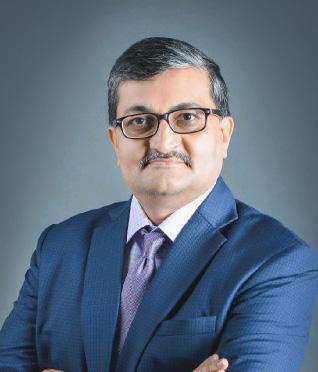
Making sure people are on the right side of their tax affairs, and of the taxman is both a duty and a calling for Nirav Shah. Staying ahead of the tax rules is paramount for businesses and individuals alike. This is especially true in the Gulf Cooperation Council (GCC) nations, where recent years have seen a significant shift towards more complex regulatory frameworks.
“We are at the forefront of navigating these changes in the United Arab Emirates (UAE) through FAME Advisory, having carved out a niche since 2015 in offering expert advice on corporate structures, succession planning, and compliance, particularly in relation to international tax laws,” Nirav reports. “And that is why I am so enthusiastic about our collaboration with Taxmann, India’s premier publisher of tax-related materials, to author a comprehensive guide on UAE corporate tax.”
He says this initiative marks Taxmann’s first foray outside of India and aims to demystify the UAE’s corporate tax regime for a
On Partnering with Indian publisher Taxmann: “They are the leading publisher of books on tax matters in India and approached me to create something for UAE corporate tax. This collaboration marks a significant step as it’s their first publication outside India, focusing on the intricacies of UAE’s corporate tax laws.”
The Challenge of Publishing in the UAE: “In the UAE, getting approval to publish a book is a separate and somewhat daunting process in itself, as every book that you publish in UAE requires a process of getting the Ministry of Culture’s approval. This regulatory environment adds a unique challenge to the publication process.”
Compiling the Tax Guide: “It took me about four and a half months to put everything together. The idea was to compile all [the laws and guidance] in one place, have key and case studies, and expand that in very simple language for anybody to understand. Making complex tax regulations accessible was the core aim.”
Updating the Book: “The book was already six months old by the time approval came through, so I had to go back and update some of the chapters for whatever new addition to the law was in terms of regulation.”
On UAE’s Tax Landscape: “UAE had no taxes until it introduced VAT about five years back. Now, a corporate tax regime is coming in. This means it is crucial for anyone operating or considering operating in the UAE to understand the tax implications. This book serves as a one-stop-shop for all related material.”
Audience for the Book: “This book is a very useful resource for any tax professional, tax practitioner, lawyer, or accounting professional operating in the UAE. It’s a first of its kind reference material, pulling everything together in one place, making it a musthave for finance professionals.”
FAME Advisory’s Role: “We are a boutique tax consulting firm. We advise on international tax and tax matters related to local tax and tax compliance in the UAE. Our goal is to help clients optimise their tax structures in the right way, ensuring compliance across their structures in the UAE.”
wide audience. Shah explains: “It was a serious undertaking, needing about four and a half months of real focused effort to put everything together,” he states. “But the result is, I hope, well worth it.”
The task was monumental, not just in terms of compiling the book but navigating the UAE’s stringent publishing regulations. “In UAE, getting approval to publish a book is a separate process in itself,” Shah
notes, highlighting the complexity of obtaining Ministry of Culture approval. After a meticulous sixmonth process, the book received the green light, and now serves as a testament to Shah’s dedication and expertise, and as a guide for all.
Nirav says the need for such a publication has never been more acute. The UAE’s tax landscape has undergone significant change, including the introduction of VAT and, more recently, a modest corporate tax. “The idea of the book was to compile everything and put all in one place,” says Shah, underscoring the challenge of consolidating various guidance documents into a single, accessible resource. With its detailed summaries, case studies, and flowcharts, the book promises to be an indispensable tool for anyone navigating the UAE’s corporate tax environment.
Who will benefit from this weighty digest? Shah is clear: “For any tax professional, tax practitioner, lawyer, or accounting professional, it should be a very useful resource.”
He elaborates on the book’s practical applications, from understanding liabilities and duties under corporate tax to maintaining discipline in bookkeeping. “The guide is not just for UAE-based professionals,” he remarks. “It has garnered interest from Indian companies with operations in the UAE, further emphasising its broad relevance.”
Beyond the book, Shah provides a short update and overview of FAME Advisory’s broader mission. “As a boutique tax consulting firm, FAME offers a raft of services aimed at ensuring tax compliance and optimisation for multinationals and families alike,” he reports. “We advise on international tax
and tax matters related to local tax and tax compliances in UAE, delivery a comprehensive approach to tax advisory.”
From its inception, FAME Advisory was designed to address the growing complexities of the Middle Eastern regulatory environment. This latest collaboration with Taxmann is just the latest example of how the firm continues to lead the way in providing cutting-edge tax advice and solutions.
As the GCC countries, and the UAE in particular, continue to refine their tax regulations, the expertise of firms like FAME Advisory becomes increasingly invaluable. “We hope we are not just keeping pace with these changes, but genuinely and professionally helping to chart the course for others to follow,” he concludes.
«
‘‘UAE had no taxes until it introduced VAT about five years back. Now, a corporate tax regime is coming in. This means it is crucial for anyone operating or considering operating in the UAE to understand the tax implications.’’ »
For further reading on Nirav Shah and Fame Advisory, see this late 2022 Hubbis report: https://hubbis.com/article/fame-advisory-expert-nirav-dinesh-kumar-shah-surveys-the-uae-srising-wealth-structuring-expertise


Kevin Lee is a well-known lawyer and partner at UK law firm Stephenson Harwood’s Hong Kong office, from where he heads up the firm’s estate & legacy planning and structuring practice for wealthy private clients in the Asia region. Hubbis met with him again recently to hear his latest perspectives on the evolution of robust estate & legacy planning for HNW and UHNW-level clients, and to learn his views on how clients should approach the hiring of professional advisers and what those advisers should offer for what are often some very hefty fees. We have converted his articulate and nuanced insights into this short Q&A.
GET IN TOUCH
View Kevin Lee’s LinkedIn Profile
Learn more about Stephenson Harwood

How do you set about making sure that the simple and less obvious mistakes are not made during the process of estate and legacy structuring?
Clients should begin by clearly identifying their objectives and determining whether they need wealth management, legal advice, succession planning, or another form of guidance. It’s essential to discern which advisory sectors are pertinent to your situation, as some providers and experts may focus on specific investment products rather than offering comprehensive wealth or succession planning services.
After evaluating the nature of the advice needed, especially if there is a legal component - which is often the case - consider whether you require a private wealth lawyer for issues like tax migration, succession planning, potential disputes, or a mix of these concerns. Remember, no single lawyer is a
perfect fit for everyone due to the variety of needs and personality differences. Identifying potential advisors starts with an initial meeting to assess compatibility and ensure they align with your goals without steering you off course. Chemistry is important in such personal matters.
If the matter is primarily related to tax, you may find several options available, varying by jurisdiction. However, for broader issues, the number of private wealth lawyers capable of addressing a wide range of needs in a single consultation is limited. These lawyers should understand the client’s overall needs before focusing on specific issues, possibly consulting with colleagues or external advisors to provide more comprehensive advice. Be wary of private wealth lawyers who claim to cover all aspects of wealth management without the requisite expertise in areas critical to your concerns.
Be wary of advisors who brandish the “private wealth” or “family office” banner (which by itself is fine) and claiming to cover all aspects of wealth management and succession but perhaps without the requisite expertise in certain specific areas critical to your concerns.
At least half of the new clients might be from intermediary referrers. But there’s a good portion that comes to us who are friends or family of existing clients who are satisfied with the advice received. There is a clear payoff for doing good work for new clients. Interestingly in Asia, the older generations from some nationalities and ethnic groups do not easily just trust external advisors unless someone in their close circle has recommended that advisor, but when you are ‘confirmed’ as approved, then there may be a snowball effect.
« ‘‘The world is changing rapidly, and while the structured frameworks of wealth advisory services provide a foundation, they may not always suffice in addressing the nuanced challenges our clients face.’’ »
How often do you turn down clients, and for what reasons?
All lawyers must be prudent and (in some cases) circumspect about who they work for and also the bandwidth they have to provide the right level of service. I am too busy to do a good job for everybody, that is a reality. That is why it is also vital to have a strong team I trust and that clients trust. Frankly, it is also a question of who can pay our fees, and for those clients that want more of a discount service, they will be able to find other firms who charge at levels they can afford. I should also say that while we are determined to produce top-quality advice, the time and effort to do that would be covered by our clients, and, yes, I do worry about where the legal sector is going if some clients are being forced into different levels of advice sometimes because of the cost structure.
Is there a danger that some law firms might drag matters on longer than strictly necessary?
Well, I think it’s difficult to detect for any client without deep experience with law firms. It is possible that sort of behaviour could exist in a range of different size law firms, big or small, international or local. However, the principle is that law firms owe a duty to be reasonable and to act in the best interests of the client.
That is partly why it is vital to meet your law firm and the lawyers and make sure that chemistry and communication will work well. You need to trust that they are doing a good job and that they are safeguarding the interests of yourself and your family. If you get the right adviser then hopefully you can at least trust that person, that trusted advisor, that firm and openly address issues with them, if such arise.
How has this whole private wealth estate and legacy planning universe evolved in recent years, and what lies ahead?
Reflecting on the evolution of the advisory role, especially in wealth management, I have noticed significant changes over time. Initially, our approach was straightforward: a client presented a problem, and we, as lawyers, tackled it directly. If a challenge was beyond our expertise, most legal advisors may have been inclined to decline the instructions and refer the client away to a specialist. While this is of course still a common and prudent practice today, I am seeing in the private wealth practice a few more advisors who are familiar with a broader range of issues and who can competently and with outsourced help project-manage matters for private clients even if they do not have deep personal experience in all relevant aspects of the matter.
As the sector matured, we have seen a more polished, brand-centric identity. Concepts like wealth management, wealth advisory, and succession planning became prevalent, shaping clients’ expectations and influencing the language and approach of professionals in the field. When I began my career, these terms were seldom used, even though the outcomes we sought for our clients were essentially the same. Back then, without the widespread discourse on these topics, we relied more on intuition, common sense, and a deep understanding of our clients’ needs to guide our decisions.
Today, there’s an abundance of resources and guidelines designed to streamline the advisory process, purportedly offering a quicker path to solutions. However, I’m not convinced these developments are keeping pace with the increasing complexity of the global landscape. The world is
« ‘‘Engaging a trusted advisor can, in fact, be a cost-effective strategy in the long term. By having someone knowledgeable and reliable to guide you through this intricate web of global regulations and emerging issues, families can make informed decisions that ultimately preserve their wealth and ensure compliance, avoiding costly pitfalls along the way.’’»
changing rapidly, and while the structured frameworks of wealth advisory services provide a foundation, they may not always suffice in addressing the nuanced challenges our clients face.
Looking for example at the landscape of multijurisdictional tax, compliance, and migration issues, the dynamic has profoundly shifted over the years. In earlier times, it was common for clients to approach us with specific inquiries—perhaps about tax implications in a single jurisdiction or the logistics of relocating to a new country. The scenarios were fairly straightforward, rarely involving families spread across multiple jurisdictions or the complexities of global reporting mandates. Back then, clients might have been more inclined to overlook my cautious guidance to seek comprehensive advice across all relevant territories, with a tendency to prefer operating ‘under the radar’.
That was then, and those days are long gone. As regulation, and as awareness have increased, so has the realisation that sidestepping the system is less feasible. This enlightenment is partially due to the dissemination of knowledge emphasising the necessity of compliance, coupled with the continual introduction of new regulations.
Despite these challenges, I don’t believe it’s too late for families to benefit from professional advisory services. There’s still a significant opportunity for us to provide value. Indeed, while not all families may recognise this yet, many do see the inherent value in maintaining a trusted advisor relationship. This role isn’t just about navigating current legal and tax complexities; it’s about foreseeing and managing potential future challenges for the individual and their families.
Engaging a trusted advisor can, in fact, be a costeffective strategy in the long term. By having someone knowledgeable and reliable to guide you through this intricate web of global regulations and emerging issues,
families can make informed decisions that ultimately preserve their wealth and ensure compliance, avoiding costly pitfalls along the way.
The world is becoming ever more complex. Does it mean there is even more need for astute thinking and guidance, and how can you stay on top of everything?
When you delve into the complexities of advising ultra-high net worth families, it becomes apparent that every facet of their journey could potentially benefit from professional guidance. Take, for instance, the topic of children; this is an area that often flies under the radar but harbours significant concerns for many clients, particularly regarding the rights of children.
Digital assets serve as another poignant illustration. In the realm of trust management, it is tempting for trustees who don’t deal with digital assets to dismiss them as irrelevant. The rationale might be, “Why should I invest time in understanding something that doesn’t pertain to my current practice?” However, overlooking the importance of emerging technologies like AI can ultimately lead to obsolescence. As the digital landscape evolves, failing to stay informed and adapt accordingly could diminish your relevance in the eyes of clients and their successors.
This realisation highlights a crucial aspect of our role as advisors: the necessity to evolve with the times. Remaining static, clinging to traditional methods that have proven successful in the past, is no longer viable.
The world is changing rapidly, and so are the needs and expectations of HNW and UHNW families. Staying abreast of trends, including those that might seem peripheral to our primary areas of expertise, is essential. It is all about more than just maintaining relevance, providing comprehensive, forward-thinking guidance that addresses the full range of our clients’ needs, now and in the future.


Dominic Volek, Group Head of Private Clients at Henley & Partners, believes that for wealthy clients and their families, the world truly can be their oyster. He ardently advocates that those who can afford to do so should acquire residence or citizenship in alternative jurisdictions, not just for the benefits it brings for the immediate or near future, but also for the decades, even centuries, ahead. He sat as one of the expert panelists at the first Hubbis Digital Dialogue for 2024, which focused delegates’ minds on the whys, whens, and hows of robust estate planning and structuring for high-net-worth and ultra-high-net-worth clients and their families. Hubbis has carved out and distilled Dominic’s comments into the following insights and words of advice.
GET IN TOUCH
View Dominic Volek’s LinkedIn Profile
Find out more about Henley & Partners
View the On Demand version of this Digital Dialogue
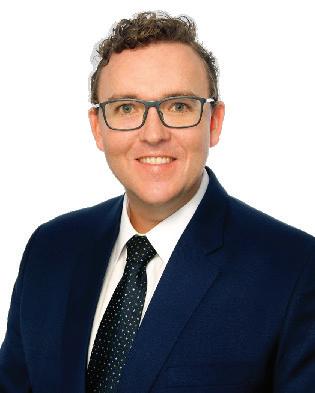 Henley & Partners
Henley & Partners
On the true value of investing in optionality through residence and/or citizenship by investment programs
“When it comes to preserving multi-generational wealth and future-proofing your family, you need to ensure you create new opportunities as well as mitigate risks. One of the best investments you can make in this regard is to secure a world-class international education for your children in combination with a portfolio of residences and citizenships that gives them personal access rights to a range of jurisdictions. I often ask my clients: If you had USD 10 million to invest in your child’s future, would you give them the
cash, or would you invest it in their education and a range of investment migration programs that give them the right to live and work in a country or countries where they could possibly turn that into USD 100 million?”
Estate, legacy, and succession planning are especially topical in a world of intensifying regulation, greater scrutiny, and diminishing privacy
“Wealthy families are becoming acutely aware of the limitations of only having one citizenship, particularly where they are allowed to hold dual or multiple citizenship. We certainly advise these families that limiting themselves in such a way is not a sensible approach. Domicile diversification is very valuable at any time, especially in an uncertain world. We are active across major developed countries, such as the USA, which is now our biggest single market, and across emerging or less stable countries, which for the last three decades have dominated our business in terms of private clients. People of all nations are now looking at investment migration for optionality for themselves and their families, because the reality is that we do not know what tomorrow will hold for us all.”
Things change — recognize that and plan properly for whatever the future might bring
“At the turn of the 19th century, Switzerland was one of the poorer countries in Europe, and today it is right at the top of the pile.
Singapore has come an incredible way since its independence in 1965. You cannot tell exactly how things will change in the future. Diversification and optionality help protect you and your family, and future generations, against unforeseen changes and open the door to opportunity. An investment of EUR 738,000, for example, in Maltese citizenship, which provides access to the EU, is a remarkably good investment.”
On a far tighter and more demanding global regulatory environment that requires robust, prescient planning and smart wealth and estate structuring
“In terms of structures, trusts, and so forth, there is now a real balance between what control the asset owner would like to have and what control the regulatory and tax environment would determine they can actually have. Furthermore, trustees (and directors) always ‘doing what they are told’ [by the clients] should be a thing of the past.”
« “Physical presence requirements vary, but programs generally offer great flexibility, so clients do not need to spend many days in their selected country until they wish to. The more options the client and their family have, the more choice they can exercise in the future.” »
If you acquire alternative residence or citizenship today, you can choose to move later…or not
“The majority of our clients do not necessarily move to their new jurisdiction of choice. Some people, of course, choose to relocate, but others choose to wait, staying in their home countries where their businesses are and waiting for retirement or some other kind of trigger event to move, for example. Physical presence requirements vary, but programs generally offer great flexibility, so clients do not need to spend many days in their selected country until they wish to. The more options the client and their family have, the more choice they can exercise in the future.”
Taxation is always an issue and, again, domicile diversification offers that optionality
“We are not tax advisors; our clients should work with tax
specialists to devise optimal solutions and outcomes. But what I can say is that tax is an issue for everyone, so if you are in a high-tax environment, you might choose a jurisdiction with lower tax requirements for the future. There are also many who are selecting a higher-tax market — for example, Australia, Canada, or the UK — for a variety of reasons. The most important element clients need to plan is whether they will choose to move and become tax residents elsewhere. They need to plan their structures, and they need the support of specialist lawyers, trustees, and others to help them curate the right approach.”
A family office can form part of any futureproofing estate and legacy planning but is not an end in itself
“It is important for many in the industry to realize that a family office is not a product in and
of itself and does not offer a complete solution — particularly with respect to succession.”
Education is key to the future of humanity and the family unit, so focus on the options that your wealth can bring
“Henley & Partners works with clients and their families to help them future-proof themselves. One of the fundamentals for all of us is the education of the next generation. The firm has also developed an education advisory business through which we help clients analyze and then obtain the best education options for their families. Residence and citizenship by investment are absolutely aligned with this objective, so we can bring in our team of education experts alongside our specialists who will help these private clients attain their domicile diversification goals.”
We’re delighted that Henley & Partners is supporting a number of our upcoming physical and virtual events. If you want to hear more on similar themes, be sure to refer to the below –
» Philippines Wealth Management Forum 2024, taking place on Wednesday 20th March in Manila.
» Malaysia Wealth Management Forum 2024, taking place on Wednesday 8th May in Kuala Lumpur
» Thailand Wealth Management Forum 2024, taking place on Wednesday 15th May in Bangkok
» Hubbis Wealth Solutions Forum – Singapore 2024, taking place on Wednesday 5th June
» Indonesia Wealth Management Forum 2024, taking place on Wednesday 12th June in Jakarta
» India Wealth Management Forum 2024, taking place on Wednesday 28th August in Mumbai
» Hubbis Wealth Solutions Forum – Dubai 2024, taking place on Wednesday 11th September
» Hubbis Wealth Solutions Forum – Hong Kong 2024, taking place on Wednesday 23rd October
» Vietnam Wealth Management Forum 2024, taking place on Wednesday 30th October in Ho Chi Minh City
If you have any questions, be sure to reach out to us at content@hubbis.com

Richard Grasby, Partner, Private Client & Trusts, at law firm Appleby is an expert on estate & succession planning. Based in Hong Kong for a leading offshore law firm, Richard has a great perspective on global trends in wealth structuring and their relevance to Asian markets. He sat as one of the expert panellists at the first Hubbis Digital Dialogue event of 2024, which focused the minds of delegates on the why, when and how of robust estate planning and structuring for HNW and UHNW clients and their families. Hubbis has carved out and distilled some of the key observations Richard provided from what was a lively and informative discussion.
GET IN TOUCH
View Richard Grasby’s LinkedIn Profile
Find out more about Appleby
View the On Demand version of this Digital Dialogue
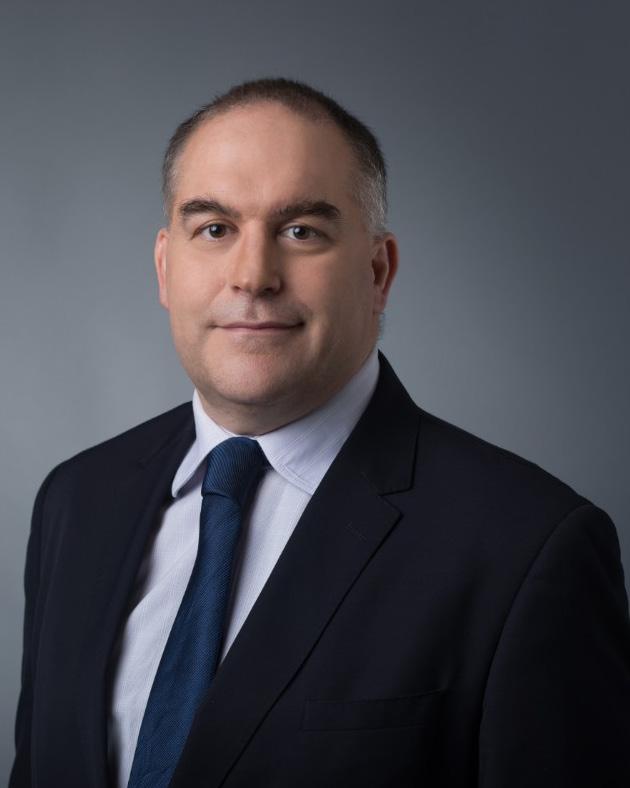
RICHARD GRASBY Appleby
Richard first responded to a fellow panellist’s comments on the expansion of FATF to look with more scrutiny at trusts, which could potentially lead to trust registers that could then become accessible through ‘legitimate interest’ information requests, Richard agreed that this was a potential ‘monster’ in the making, as there are literally millions of trusts established in major jurisdictions. He cautioned that as trusts generally hold shares in companies as well as other assets, there are numerous implications around beneficial ownership, and privacy.
He explained that while there is today less inevitability around public registers for beneficial ownership than perhaps even a year ago, the compliance requirements have not diminished.
“We seem to be somewhat at a crossroads,” he commented. “Historically, trusts have been used to bypass ownership issues and avoid probate, but actually, in some areas carried on as before, from the purposes of control. And now with more scrutiny coming through, then there are questions as to what the trust has actually achieved.”
As a result, he said that are seeing more interest in professional protectors, more actual third-party investment mandates, rather than what he termed ‘DIY’ investment mandates, meaning that the approach or attitude of ‘well, I’m going to carry on as before, it is my structure, my money’ has to change.
“It is a somewhat refreshing change in some respects to actually have trustees being trustees as opposed to just being effectively glorified nominees,” he commented. “We are seeing this shift. We are seeing
challenges from the divorce courts, from creditors, pushing back against what essentially are illusory trusts. The result is that clients are increasingly saying they do not want all those powers and control, and that means that probably there might be fewer trusts, and the costs may go up, but also it means that some of the structures become more substantial.”
Richard later turned his attention to the challenges around multiple jurisdictions, noting that there are many families in Hong Kong, for example, with properties in London, Hong Kong, perhaps Australia and with children and grandchildren dotted around the globe.
“Today, while there is no IHT in Hong Kong, their affairs are far from straightforward. For example, they will likely face inheritance tax issues in the UK if they have London properties. This all means that their situations need to be looked at in detail and also in both a holistic and timely manner.”
Richard explained that it becomes more complex in countries such as India or China, similarly with no IHT, but with clear rules on how much money can be sent offshore,
« “Today,
while
there is
no IHT in Hong Kong, their affairs are far from straightforward. For example, they will likely face inheritance tax issues in the UK if they have London properties. This all means that their situations need to be looked at in detail and also in both a holistic and timely manner.” »
meaning that ‘clever’ or ‘grey area’ schemes to move money offshore could come back to bite later on, if the necessary procedures were not originally in place. He explained that this means rising pushback on how people have got their money out of countries such as China or India.
“There is a sort of joining of the dots taking place,” he commented. “With different structures for different purposes, there are multi-jurisdictional issues both from an asset perspective and from a personal perspective. What works in one jurisdiction won’t work in all of them. You may be looking at insurance solutions, you may be looking at civil law solutions, you may be looking at trusts. That, in turn, means different advisors, multiple KYC, and so forth. Advisors must also be careful as they clearly cannot be experts in all areas. In short, there is no longer a one-stop shop to solve all these potential issues. You really need to have teams of experts and with global coverage.”
Richard also commented on a question from the audience on the relevance and applicability of trusts compared with foundations. He explained that the offshore wealth structuring industry tends to promote trusts in common law markets, but in civil law jurisdictions, a foundation would be welcomed far more easily than a trust, and clients often prefer foundations as they do not need to then trouble themselves with handing control of their assets to trustees, at least nominally.
He also added that traditionally, the common law jurisdictions do not really know what to make
Richard Grasby holds a partnership position at Appleby’s Hong Kong office, overseeing the Private Client, Trusts and Family Office practice.
He provides guidance to trustees, high net worth individuals, private trust companies, and family offices on creating, reorganising, and managing trusts like BVI VISTA, Cayman STAR and Employee Benefit Trusts. His expertise extends to estate management, succession planning, family governance, and advising on corporate structures for asset holding and succession objectives. With a solid background in regulatory law, Richard assists with matters of AML, AEOI, economic substance sanctions, licensing, and risk management for trust companies, alongside advising on collective investment funds, notably unit trusts and private label funds.
Richard, with over 20 years of post-qualification experience predominantly in offshore firms, has liaised with leading trust companies, financial institutions, and affluent individuals globally. He has practised in various regions including Jersey, London, the Cayman Islands, and Hong Kong since 2009. Richard is a registered solicitor in England and Wales, and the British Virgin Islands, a Registered Foreign Lawyer in Hong Kong, and has been an Attorney in the Cayman Islands.
He was acknowledged in the 2023 edition of the Private Client Global Elite Directory and the Who’s Who Legal Thought Leaders: Private Client 2023 report.
As an active STEP member, Richard has served on the local executive committee since 2012, formerly as chair, and is part of global steering committee for the Cross Border Estates Special Interest Group, and a member of the Academic Community and Governance Committee. He is also affiliated with the Family Firm Institute, the International Bar Association, and the Investment Migration Council.
Richard is a distinguished Academician of the International Academy of Estate and Trust Law, notably the sole offshore practitioner from the APAC region to hold such a title. He is also certified as an Anti-Money Laundering Specialist. His educational qualifications include a Postgraduate Diploma in Legal Practice acquired from the College of Law, York in 1997, an LL.B. (Hons) in Law and French from the University of Bristol in 1995, and a diploma from the Université de Poitiers obtained in 1994.
of foundations, particularly for tax. “For example,” he said, “when I worked in the UK, it was always difficult to advise a client with a foundation on key issues around tax, whereas in civil law jurisdictions in Europe, it was far easier to obtain clarity.”
Richard’s final words came later on when the conversation shifted to implications for compliance and regulation around investment
migration, cautioning that some people had been poorly advised, or perhaps naïve in declaring their jurisdiction for tax purposes as a country in which they might have the right to residence, rather than actually being resident there. He said, for example, that there are thousands of Hong Kong ID card holders who aren’t actually resident in Hong Kong, meaning that they cannot actually claim to be resident there for tax and planning purposes.
He added that this might be one reason that there is a thrust for investment immigration agencies to be more regulated, for example by coming under FATF scrutiny. He noted that this could actually be a positive, as it will help further professionalise the investment migration industry, sorting the professionals from the also-rans, some of which are clearly cutting corners in terms of the information they provide to their clients.

THE ACCIDENTAL US TAXPAYER HOW MANY NONAMERICAN HNW FAANG INVESTORS ARE GUARANTEED TO LOSE UP TO 40%


The Nasdaq 100 is making all-time highs – led in part by the usual team of FAANG stocks – Facebook, Apple, Amazon, Netflix, and Google (but do not forget the rest, and apologies to Bill Gates!).
Many high-net-worth investors today have made significant fortunes by sticking to a buy and hold strategy in the US tech sector with the new focus on AI and the stocks that will benefit from this new paradigm.
Whether this is sustainable is another tea leaf reading guess, but two things are for sure and do not need tea leaves:
1. If you are a Non-Resident Alien for US tax purposes, it does not matter where you live, or where your investment account is, if you have more than $60,000 of US stocks, when you pass away (whenever that may be) your estate will be liable for US estate taxes of between 18% and 40%.
2. In the case of Executors or Administrators of estates, your non-US private bank or broker could be in deep trouble if they do not report you as the executor/administrator of the estate of the deceased and the US estate tax liability which is due.
Let me explain ...
GET IN TOUCH
View Mark Smallwood’s LinkedIn Profile
Find out more about Hubbis
Firstly, what is a US Non-Resident Alien? Let’s break it down as follows (in the context of the United States):
1. According to the Internal Revenue Service (IRS) an alien is “any individual who is not a US Citizen or US national”.
2. In addition, according to the IRS, a “Non-Resident Alien”, is an alien who has not passed the green card test or the substantial presence test.
In case you are wondering what a “US National” is, it does not cover green card holders, but covers a very small number of people who were for example born in the Philippines or American Samoa etc. at specified times. The principal difference being that they are able to have a US passport, but unable to vote in elections.
So, in laypersons terms, if you are not a US Citizen, or national, and do not have a green card and do not live in the United States, then you are most likely a “NonResident Alien”.
So, what issues do Non-Resident Aliens have? Well, it boils down to some quite unpleasant discrimination when it comes down to US estate taxes.
The subject of US Estate Taxes is highly complex, but thankfully for this purpose it does not have to be and is very clear cut.
Firstly, in simple terms, if you are a US Citizen or Permanent Resident (green card holder), then you are liable to US estate taxes of up to 40% on your global assets. Simple. Given the generosity of the United States to its own Citizens, they provide a very attractive exemption for estate tax of (currently) $12.92 million per person (note that this is due to halve on 31st December 2025 unless extended) – so a married couple could leave $25.84 million between them without suffering estate taxes. Compare this to the UK where the inheritance tax threshold is a paltry £325,000 per person.
If you think the UK is bad at £325,000 – and you are a NonResident Alien – and you own US securities – then things are even worse…. for you.
For a Non-Resident Alien the US estate tax threshold drops from $12.92 million to… $60,000. That is not a typo - $60,000. So why should this be a problem if you do not have any assets in the US and you are not a US Citizen or National?
The IRS states very clearly the tax treatment of Non-Resident Aliens and in particular, in so far as US Estate taxes are concerned, they do not mince any words, which are worth repeating:
“Certain deceased non-residents who were not citizens of the United States are subject to U.S. estate taxation with respect to their U.S.-situated assets. For estate tax purposes, a citizen of a U.S. possession is not a U.S. citizen.
U.S.-situated assets that are subject to estate tax include, for example:
» Real estate located in the U.S.,
» Tangible personal property (excluding some art), and
» Stock of corporations organized in or under U.S. law, even if the non-resident held the certificates abroad or registered the certificates in the name of a nominee.”
You may not believe me, so here it is: https://www.irs.gov/individuals/ international-taxpayers/somenonresidents-with-us-assets-mustfile-estate-tax-returns.
So to be quite clear, if you are a Non-Resident Alien, with $1 million of US stocks, in an account outside
« “The consequence of this situation for those clients who do not take action can be frightening. I always recall a well-known lawyer stating that the last thing a high-net-worth person should do is turn their beneficiaries (children) into criminals.” »
the US (say Singapore), and you have never been to the US, when you pass away, your estate will become a US tax payer, subject to US Estate Taxes, with a threshold of $60,000, which means that $940,000 will be subject to up to 40% US Estate Tax ($376,000!). In my private banking days, I have seen Non-Resident Alien clients with $50 million plus in US securities in their personal name in accounts in Singapore and Hong Kong… do the maths…
The consequence of this situation for those clients who do not take action can be frightening. I always recall a well-known lawyer stating that the last thing a high-networth person should do is turn their beneficiaries (children) into criminals. Let me explain.
If a HNW person who is a NonResident Alien has US securities in their personal name, then when they pass away, the disposition of those assets will in most cases either be undertaken by the Executor(s) of their Will or by a Court Appointed administrator (where the person dies intestate) under (typically in English Common Law jurisdictions) a Grant of Letters of Administration (normally a close relative).
The Executor(s) or Administrator(s) of the estate have personal liability and are required to and are liable to pay from the estate of the deceased all debts and liabilities (including taxes) before disbursing the balance of the estate to the beneficiaries.
Clearly, where the Executor(s) are a law firm, the law firm takes this liability.
So, for the HNW client who thinks they can ignore this problem – it cannot be ignored. The
lawyer Executor will be bound professionally to ensure the US estate taxes are paid, and the family Executor may be tempted to break the law by not paying the taxes and so criminalise themselves.
The consequences are further exacerbated from the point of view of the financial institution (FI) which acts as custodian of the US securities. The FI will be aware of the death of the account holder and will also be aware that if the value of the US securities in the account exceeds $60,000, then the Executor/ Administrator of the Estate will need to disclose and pay US estate taxes. Indeed, from the moment the account holder is deceased, the account holder/estate needs to be regarded as a US taxpayer.
This of course means that the compliance departments of non-US based banks and custodians need to be on top of this issue and ensure that they are obtaining FATCA returns from the Executors/Administrators or Trustees of the Estate. Some may even wish to see evidence that all US tax liabilities have been accounted for and paid by the estate before releasing the assets.
So, to summarise, turning a blind eye to this issue is not an option, and clients need qualified advice as to how to mitigate the liability, which is for most clients in Asia, easily achieved.
Investors or clients who have this issue, need to speak to qualified tax advisors and lawyers or their wealth planners at their private banks and wealth managers. The solution for most involves placing a “blocker” between the individual and the US securities. This can include but not be limited to:
1. A properly structured corporate account (e.g., a BVI company, a Singapore Variable Capital Company etc.) creates a separation from the individual to the company. The company does not die – the company holds the US securities - there is no US estate tax.
2. A Private Placement Life Insurance – the individual enters into a life insurance contract with an insurance company – the insurance company holds the US securities, the insurance company does not die, and passes on assets to the beneficiaries of the life insurance policy on the death of the life assured with no US estate tax liability.
3. US equity exposure via managed or passive (ETF) funds can provide the exposure to US securities without the US estate tax issue. The danger here is that investors may make the mistake of investing in a US based ETF for example to gain exposure to a certain index or strategy, and this is of course a US security – so investors should be utilising ETFs and Managed Funds which are based in (for example) Ireland, Luxembourg, Singapore etc. rather than the US. These types of funds do not of course solve the problem where concentrated holdings in a small number of US securities is required.
4. For short term exposure, Structured Products, Swaps, Certificates For Difference, and so on, could be utilised – again the client does not directly own the underlying so there is no US estate tax liability – the problem is of course the cost of carry, so this is likely better suited to short term tactical trades.
If you are standing in a tunnel, and two rails are running past you, and there is a light at the end of the tunnel that is getting bigger – then my suggestion is to get out of the way.
The issue with the US Estate Taxation of US securities held by Non-Resident Aliens is a “clear and present danger” and with the right advice can be easily resolved. The days of relying on lack of information exchange are long over and clients and their advisors should be taking remediation measures.
I have no doubt that all of the private banks in Asia have clients with very significant holdings of US securities and they need to take advice and have the account structured properly, ideally in conjunction with overall Estate and Succession planning advice.
This article is designed to spark awareness rather than provide specific solutions - hopefully the article will spark wealth managers and their clients to seek the necessary advice and solve what can be for many a significant potential liability with, in most cases, a simple solution.


Howard Bilton knows rather a lot about the ‘folly’ of wealthy private clients not making the right decisions and taking the right steps around wealth and estate planning and structuring. Wearing his professional hat, he is Chairman and Founder of wealth and structuring advisory The Sovereign Group. And wearing his sun hat, he presides over the grapes of his own vineyard in the Alentejo in Portugal, which produces his ‘Howard’s Folly’ wines. His mantra is preparedness for constant change in both his professional and his winemaker roles. In the wealth and estate structuring space, he advocates that his HNW private clients dotted around the globe –many of them British by origin – risk punitive taxation or even the dissipation of their own estates by not properly organising their affairs today and failing to look ahead and planning smartly for business and estate succession as well. We met with him again just recently to hear his latest thoughts and the advice his firm offers in a world of constant flux in which some changes are positive, some negative, and where decisions must be made based on understanding and careful consideration.
GET IN TOUCH
View Howard Bilton’s LinkedIn Profile
Find out more about The Sovereign Group

Howard opens the conversation by pointing to the increasing predilection for wealthy individuals and families to temporarily or permanently relocate and the increased jurisdictional opportunities available to them, such as to avail themselves of the rapid liberation and expansion of the UAE or the many ‘golden visa’ or citizenshipand residence-by-investment schemes around the globe.
“The pandemic was somewhat of a catalyst for this rising global agility amongst the HNW and UHNW community, which of course is expanding around the world,” he observes. “There is both a greater
interest and willingness to relocate themselves and their families and there are more and more viable alternatives with many countries actively seeking to attract this mobile workforce, entrepreneurs and wealth generators.”
He says that when choosing where to live, these individuals consider several factors. Tax incentives are a significant draw, especially as many countries offer similarly high-quality lifestyle attractions, including excellent travel infrastructure, excellent private healthcare, pleasant climates, good educational establishments and enjoyable sociable amenities.
New avenues await Howard adds: “Working remotely part or all of the time and being further away from customers some of the time became more acceptable during the pandemic, and that period proved that it is feasible to run a business remotely. These individuals can end up with a nicer lifestyle, lower taxation and great opportunities and facilities for their families, so it is a win-win.”
He highlights jurisdictions such as Dubai as increasingly offering a compelling combination of lifestyle and appealing tax incentives for relocation. “Decisions to move from higher-tax to lower-tax countries might also be driven by instabilities
in some places, or perhaps by upcoming events, such as retiring, selling or listing businesses, inheriting fortunes, or other lifechanging events,” he notes.
Nevertheless, Howard also notes that there is rising political and social pressure in some markets, driving the dilution or termination of some advantages of certain residency and citizenship opportunities. Specifically, he mentions recent developments in Portugal, which bowed to political and social pressure and ended its golden visa programme. Furthermore, Portugal has recently announced the imminent end to its non-habitual residency tax regime which, with care, gave a 10-year tax holiday to new tax residents.
So, too, the (very likely) forthcoming Labour government in the UK has vowed to end the non-dom tax regime, which has for many years allowed non-domiciled individuals resident in the UK only to pay limited tax on foreign receipts and foreign income and gains. “Actually, these non-doms pay far more than the average well-paid individuals anyway, and could easily just move if they lose their non-dom status, but this is very politically motivated,” Howard observes. “HMRCs own figures suggest that every time the tax on non-doms goes up the tax
« “There is both a greater interest and willingness to relocate themselves and their families and there are more and more viable alternatives with many countries actively seeking to attract this mobile workforce, entrepreneurs and wealth generators.” »
take goes down. It is wishful thinking to suggest that by abolishing this special tax break more tax will be raised. The reverse will happen”
He also notes increasing pressure from certain quarters, the EU in particular, which is gradually seeing the availability of such incentives as unfair tax competition, as higher-tax countries are essentially ratcheting up pressure on lowertax jurisdictions.
However, Howard explains that although Portugal is bowing to social and political expedience, other countries have plenty of viable schemes, even if they are major countries in the EU.
Significant choice still on offer
He explains that Italy has a 7% tax rate if you go and live in poorer and lower populated areas. Greece will offer tax holidays for relocation. Gibraltar, Monaco, Andorra, Malta, Cyprus and others are tax-free or offer very low rates of income or other taxes.
“They are all competing to attract wealthy residents because those people circulate a lot of money around the system, and then employ a lot of people who also pay tax and spend,” he remarks. “And the irony
of the pressure coming from political and social-equality champions trying to close tax incentives in their nations is that hard-working people there will likely end up paying more tax as the mobile HNW and UHNW wealth moves to other more competitive jurisdictions that await them with open arms.”
Advisors must be agile and watchful
Howard then comments on the challenges he and colleagues face in tracking and advising on these constantly shifting tides. “When working in the tax and residency space, so often we become familiar with the existing regulations and set up advisories for clients, only to see the rules then change,” he reports. “Agility, focus and flexibility are all essential.”
He also points out that in many countries, the rules are not clear until they are applied in practice, making it difficult to obtain accurate information and to proffer valuable advice.
“This ambiguity might be intentional, allowing authorities leeway in their interpretation of the rules,” he comments. “For example, the so-called ‘Beckham rule’ in Spain famously saw five different law firms consulted on the rule, yielding five
different interpretations, implying that at least some, if not all, of these interpretations could be incorrect.”
Watch, wait, understand, react
He elaborated on these complexities, citing Portugal’s NonHabitual Resident (NHR) regime as an example. “Most professional advisors have struggled to understand the NHR rules,” he says. “It has taken many of them a long time to grasp and accurately interpret those regulations, which are now, as I mentioned, coming to an end anyway. But I should add that it is not always necessary to change country to maintain favourable taxation and conditions. Sometimes, perhaps often, minor adjustments to one’s financial structures can be made to comply with new legislation.”
Moreover, he adds that sometimes, a wait-and-see approach is viable as new rules settle in and the actual interpretation of those laws becomes clearer. “Advisors and clients need to make detailed assessments before jumping to conclusions or jumping ships,” he says.
and quality
Howard draws the conversation to a close by commenting on
« “The irony of the pressure coming from political and social-equality champions trying to close tax incentives in their nations is that hardworking people there will likely end up paying more tax as the mobile HNW and UHNW wealth moves to other more competitive jurisdictions that await them with open arms.” »
his firm’s presence and his own commitment. The Sovereign Group is one of the world’s largest privately owned consultancies specialising in the provision of offshore trusts and companies and associated international tax advice. He notes that the firm is today still privately held, which is fitting for their business, clients and revenue flows.
“We have a very loyal client base, as we are deeply involved in
clients’ affairs and structures, and it is hard work transferring administration of trusts and other entities from us and then undergoing new due diligence and working with different people,” he explains. “Losing customers to competitors is rare, and price is not usually a significant factor in clients’ decisions to move since the cost of running these structures is not
typically high enough to motivate a switch for financial reasons.”
His final word is that as a private firm, they do not have pressure to cut costs and change models. “We are personal in approach, we are consistent, and we are reliable, and our types of wealthy and HNW clients like all those characteristics,” he says. “We plan to stay that way and offer real value and genuine quality.”


As we approach 2024, there are a number of changes on the horizon to be navigated by Asia’s private client advisory community. John Shoemaker, Registered Foreign Lawyer at Butler Snow, took the time to speak with Hubbis to explore a number of the changes pinging most loudly on his radar, such as the US Corporate Transparency Act, and local KYC and AML procedures in Singapore. The conversation also delved into the looming impact of Base Erosion and Profit Shifting (BEPS) discussions on private wealth and the evolving dynamics of wealth transfer to the next generation. Throughout, the theme of adapting to changing client needs and preferences emerged as a central challenge for industry professionals.
GET IN TOUCH
View John Shoemaker’s LinkedIn Profile
Find out more about Butler Snow
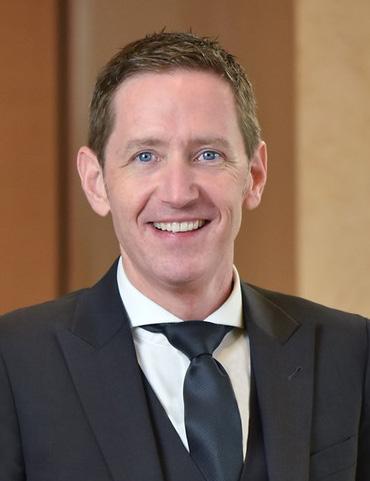
The conversation opened with a discussion on the opportunities and challenges for the private client industry in the year ahead. John began with a look at Singapore, noting its remarkable success over the past 15 years. “When asked to talk about the development of Singapore as jurisdiction, I will often say that the last 15 years could not have gone better for Singapore. To start, the disclosure facilities of Europe that drove business in this direction. The fact that perhaps Australia and New Zealand may have overregulated a bit, in the eyes of some, also contributed to the driving of business towards Singapore. And then finally, the political unrest and the COVID situation in Hong Kong, that consolidated a lot of family wealth in Singapore,” John
reports. Furthered by family offices’ preference for the city-sate, and ease of travel facilitated by Changi Airport, Singapore has emerged at the top of the proverbial food chain, he notes.
Turning to the challenges, John notes that the main obstacles revolve around managing and sustaining success. The first aspect involves ensuring the success achieved is lasting and resilient. Secondly, there’s the pressure to continually surpass previous achievements, evident in the expectations of investors and the demands of quarterly earnings reports. Companies need to strike a balance between striving for greater success and maintaining their current achievements. Additionally, the political landscape in Singapore is undergoing a shift. This change prompts a focus on how Singapore will continue to solidify its achievements, manage expectations for further growth, and adapt to potential changes in governance under new leadership.
John then made note of two significant regulatory changes on the horizon. Internationally, he references the implementation of the Corporate Transparency Act in the US This act marks the US’s further engagement in global information exchange, building on the foundation laid by FATCA (Foreign Account Tax Compliance Act). Unlike FATCA, which primarily
focused on inbound information to the US for tax compliance, the Corporate Transparency Act expands the scope. It requires US companies and foreign businesses operating in the US to disclose ultimate beneficial owners (UBOs), addressing previous gaps in US disclosure requirements. This new act, effective from January 1st, will significantly alter global information gathering practices and perceptions of the US as a privacy haven.
Locally in Singapore, John notes an increased focus on KYC (Know Your Customer) and AML (AntiMoney Laundering) procedures in Singapore. This includes stricter identification processes for those using Singapore’s financial and expertise systems. Recent actions by the Monetary Authority of Singapore against individuals misusing the financial system exemplify this trend. He advises that all financial institutions, including banks, insurance companies, brokers, attorneys, and investment advisors, rigorously review their account and engagement opening procedures to ensure compliance with KYC and AML requirements. These measures aim to identify and prevent exploitation of the financial system by unscrupulous individuals. These regulatory and compliance developments, according to John, will significantly impact the industry in 2024.
« “When asked to talk about the development of Singapore as jurisdiction, I will often say that the last 15 years could not have gone better for Singapore.” »
The conversation turned to specific tax-related issues to consider in the coming year, John highlights the concept of BEPS, which stands for Base Erosion and Profit Shifting. John explains that in today’s world, characterised by short attention spans and distractions like global conflicts in Ukraine and the Middle East, public focus has shifted away from topics such as wealth taxes, corporate tax rates, and the success of billionaire owners of global corporations. However, he emphasises that these conflicts won’t dominate attention forever, and the spotlight will eventually return to discussions about BEPS and global corporate minimum taxes. And what transpires in these discussions primarily centered on the corporate world will inevitably have repercussions in the realm of private wealth.
John notes that there have been similar scenarios observed in the past. “We saw it with FATCA and CRS, where they just didn’t understand the use of things like holding companies and trusts in the perspective of big global banks, and financial advisors and life insurance companies,” notes John. “And so, we as the private wealth industry kind of got carried along with these broad rules that were created for information exchange. I fear the same thing is going to happen from a tax perspective with the BEPS in the global corporate minimum tax discussion. So we may find that certain transparent or benign vehicles like a VCC or a holding company are going to get caught up in these global tax discussions about minimum rates.” Consequently, families could be negatively affected, receiving outcomes less favourable than what they had initially planned
John reports that in the coming year, he will be spending more time supporting Butler Snow’s London team. Additionally, he reports a personal interest in strengthening the connection between the London office and our Singapore office, citing a strong emerging European-Asian connection.
In turn, John report that whilst before the pandemic there was a trend towards simplification, with clients consolidating their assets and services in one place, COVID revealed the value of diversity and multi-jurisdictional approaches. As such, John reports a desire to help clients realise the advantages of having structures in different locations, which can significantly benefit their wealth, influence, and overall experiences.
“Ultimately, we all seek meaningful experiences, and I believe that goes beyond having a large bank account. I’m excited to return to extensive travel and engage with various jurisdictions, reflecting the resurgence of global business following the pandemic.”
for their family business and succession planning.
While this issue may not require immediate action in 2024, says John, it is certain to gain momentum in 2024 and beyond. Meaning that it will become essential for all private client practitioners to adopt a longerterm perspective and consider participating in these discussions, or providing feedback on how corporate tax changes will eventually impact the families being advised.
Honing in on how industry practitioners can deliver more value, John notes that one of the dominant themes to have emerged in the past three to five years has been the anticipation of the largest wealth transfer in history, from older generations to younger ones, a notion that has been dominating
headlines and discussions at industry conferences. However, says John, it’s essential to recognise that this wealth transfer is not an overnight event but rather a gradual process that has been gaining momentum. And as more second-generation family members taking on leadership roles, there are more conversations to be had on tax efficiency, regulatory compliance, participation in disclosure programs to address past issues, and addressing the balance between information transparency and privacy.
“In my view, as we move into 2024 and beyond, this trend will continue, with the second generation adopting a different mindset. We will see a greater emphasis on efficient tax planning rather than pursuing zero-tax strategies,” reports John. “Clients
will become more comfortable with information disclosure, even if it means moving away from complete secrecy. Moreover, we’ll witness the rise of progressive movements like charitable giving and ESG initiatives, which may not always align with traditional perspectives but are crucial to the next generation.”
As such, the challenge moving forward for professionals is to adapt to the evolving needs of clients.
“I’ve often believed that my value
to clients lies in offering alternative viewpoints, and sometimes saying ‘no’ when everyone else is saying ‘yes’,” he reports. However, as worldviews evolve, a key challenge for practitioners is to recognise moments when being right doesn’t matter as much as adapting to clients’ needs and preferences.
“In the past, our expertise often dictated the course of action, but we are entering a more balanced world where client
preferences play a significant role. It’s not just about adhering to logical tax codes or compliance; it’s about understanding and accommodating client motivations, even when they diverge from our own beliefs. Therefore, there is a need to find ways to integrate their preferences into our advice, acknowledging that achieving their goals is valid, even if we may personally disagree with them.”
« “Clients will become more comfortable with information disclosure, even if it means moving away from complete secrecy.”»



We focus on the Asian wealth management industry and produce high-quality, localised content that is practical and independent; This includes news, articles, white papers, thought leadership and conference-linked content, and is available in multiple formats including video, web and print
Hubbis provides a unique access point to the key decision makers, management and front office personnel of a significant segment of the wealth management industry in Asia. We connect with a total of 30,000 contacts at International and Local Private Banks, Retail Banks, IFAs, Family Offices, MFOs, Independent Wealth Managers, Insurance Companies, Asset Management and Professional Services firms. We arrange 19 flagship wealth management forums each year and curate 70+ bespoke events for our clients.